GLOBAL LEADERS – An Exclusive Interview with Erin Suelmann, Executive Director of the Down Syndrome Association of Greater St. Louis
February 29th, 2024 by Cole Wilkes
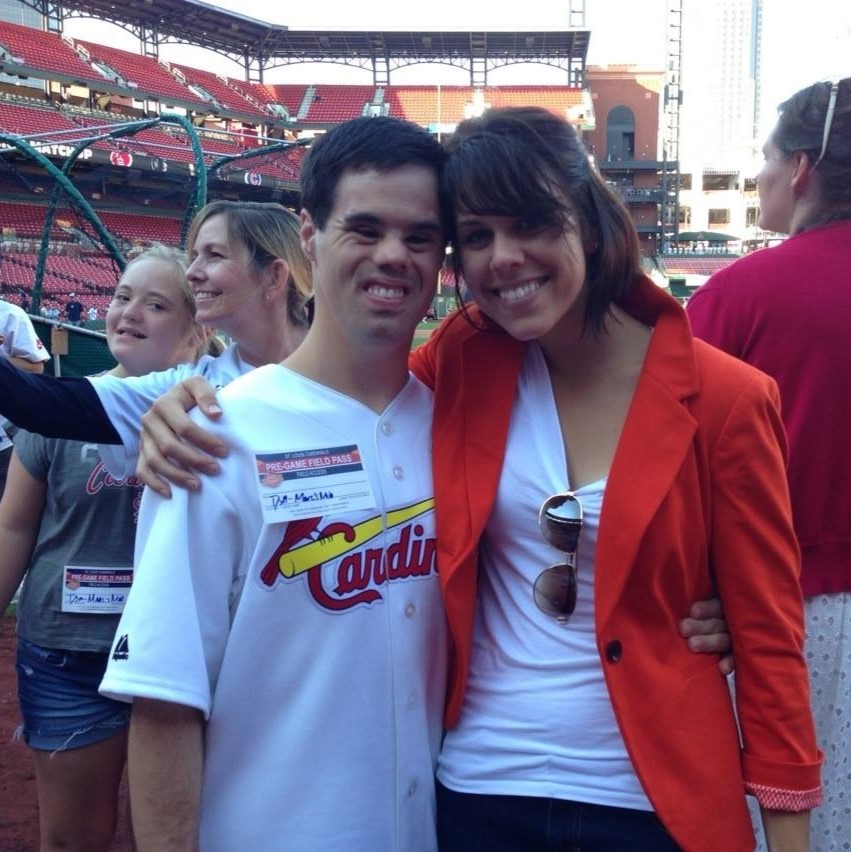 Under Erin Suelmann’s leadership, the Down Syndrome Association of Greater St. Louis (DSAGSL) has become one of the largest local Down syndrome organizations in the United States. In 2023 the organization raised over $1 million in support of over 2,000 families and expanded their impactful programs and services. Erin and her team have maintained an A+ rating from the Better Business Bureau and met all 20 BBB Charity Accountability Standards. A strong believer in financial transparency, DSAGSL invites you to view their latest Annual Report and see exactly how their sponsorship of the GLOBAL Medical Care Guidelines for Adults with Down Syndrome fits into their tight yet highly effective budget.
Under Erin Suelmann’s leadership, the Down Syndrome Association of Greater St. Louis (DSAGSL) has become one of the largest local Down syndrome organizations in the United States. In 2023 the organization raised over $1 million in support of over 2,000 families and expanded their impactful programs and services. Erin and her team have maintained an A+ rating from the Better Business Bureau and met all 20 BBB Charity Accountability Standards. A strong believer in financial transparency, DSAGSL invites you to view their latest Annual Report and see exactly how their sponsorship of the GLOBAL Medical Care Guidelines for Adults with Down Syndrome fits into their tight yet highly effective budget.
Recently, GLOBAL’s Vice President of Strategic Alliances, David Tolleson, caught up with Erin for an exclusive interview about the importance of the GLOBAL Adult Guideline, how having a brother with Down syndrome shaped her life, and her advice and hopes for healthcare support for all individuals with Down syndrome.
DAVID: Your group supported the first edition of the GLOBAL Medical Care Guidelines for Adults with Down Syndrome (GLOBAL Adult Guidelines). Why is supporting the second edition of the guideline with a multi-year pledge important to you and your board?
ERIN: I have an adult brother with Down syndrome, who’s 37. I’ve known people with Down syndrome my whole life and I’ve watched them age. That, in conjunction with being the leader of a Down syndrome association, I have witnessed first-hand the challenges that the healthcare system faces and that families face in finding good, reliable, competent care for people with Down syndrome, especially adults. So, to me it’s a “no brainer” to invest in research and tools that will improve healthcare for adults with Down syndrome and bring awareness of the importance of funding that helps everyone.
We had discussions on my board about how our investment in the GLOBAL Adult Guideline directly impacts people in St. Louis and we said it positively affects people with Down syndrome everywhere. It’s a tangible tool we can use right here in St. Louis to improve healthcare for adults with Down syndrome. I’m really grateful that GLOBAL is doing the work and leading the way in doing the work because I don’t know who else would do it—otherwise it just wouldn’t get done. It’s absolutely a priority for us.
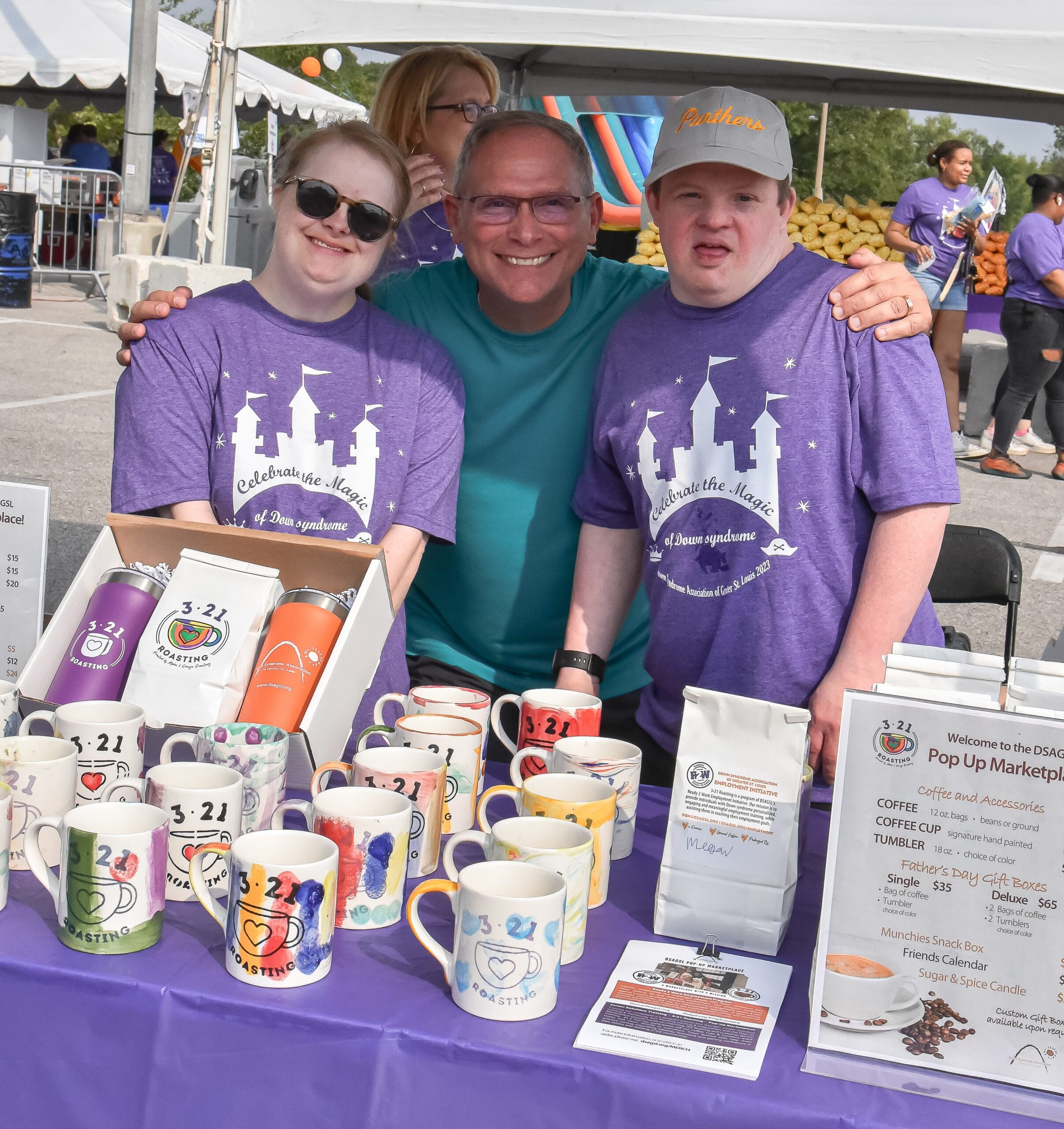
DAVID: DSAGSL is very strict about how you use your money. How does giving to the GLOBAL Adult Guideline fit into your criteria?
ERIN: Our mission is to serve, support and celebrate the lives of individuals with Down syndrome and their families through every stage of life. We believe that healthcare is essential in ensuring that people with Down syndrome can live long lives and fulfill their potential. We don’t have capacity to do what GLOBAL is doing in terms of creating the healthcare guidelines—I wouldn’t even know where to begin! We really believe in doing what we do well and partnering with and supporting agencies that are doing what they do well. GLOBAL has definitely shown that it is really good at advocating for healthcare for people with Down syndrome, which directly impacts the people we serve, so by supporting GLOBAL we’re improving healthcare for them. The GLOBAL Adult Guidelines don’t just support people in Colorado or Denver, they support people across the globe.
DAVID: You mentioned your brother. How does being a sibling impact your work?
ERIN: Oh gosh, I am who I am because of my brother. From a really early age I was cheering for the underdog and I was recognizing injustices, inequalities, and inequities. I was taking notes of how people with disabilities were being treated. I also developed a lot of patience because I have a brother with a disability. I have a lot of core memories of experiences that made me who I am. So, I take that to work with me every day and I feel really honored that I get to work in a field where I get to try to make a better world for people with Down syndrome. Whether it’s advocacy, creating programs where they are learning skills, or raising awareness about Down syndrome, everything that I do day-to-day has been impacted living with him and the great lessons he’s taught me. I’m blessed to be able to make a difference.
DAVID: How is the GLOBAL Adult Guideline making a difference in St. Louis?
ERIN: We use the Guidelines in our “Ages and Stages” packet. A few years ago, we realized families call us when they need something right away, so we thought a great way to help them would be to send them information before they need it—whether it be potty training, behavior in school, puberty, and so on—so we send out these packets at key milestones in life. The goal is that the family has the information they need before a crisis moment. We send out the GLOBAL Adult Guideline in our “16 Turning 17” packet, so all the families with a child turning 17 get that information. It helps them prepare and be better advocates for their loved ones. It helps people with Down syndrome be better advocates for themselves in the healthcare setting.
We’ve done some webinars with GLOBAL and we share GLOBAL Webinars. The GLOBAL Webinars attract the leading medical experts and are real tools that we give to people to improve healthcare for their child with Down syndrome or for themselves. In addition, last year we sent packets to healthcare professionals—something we plan to continue—in an effort to empower them to better serve people with Down syndrome. We sent the GLOBAL Adult Guideline to medical professionals along with a magnet talking about how they can get more information from our website. So, the guidelines are really directly impacting people in St. Louis.
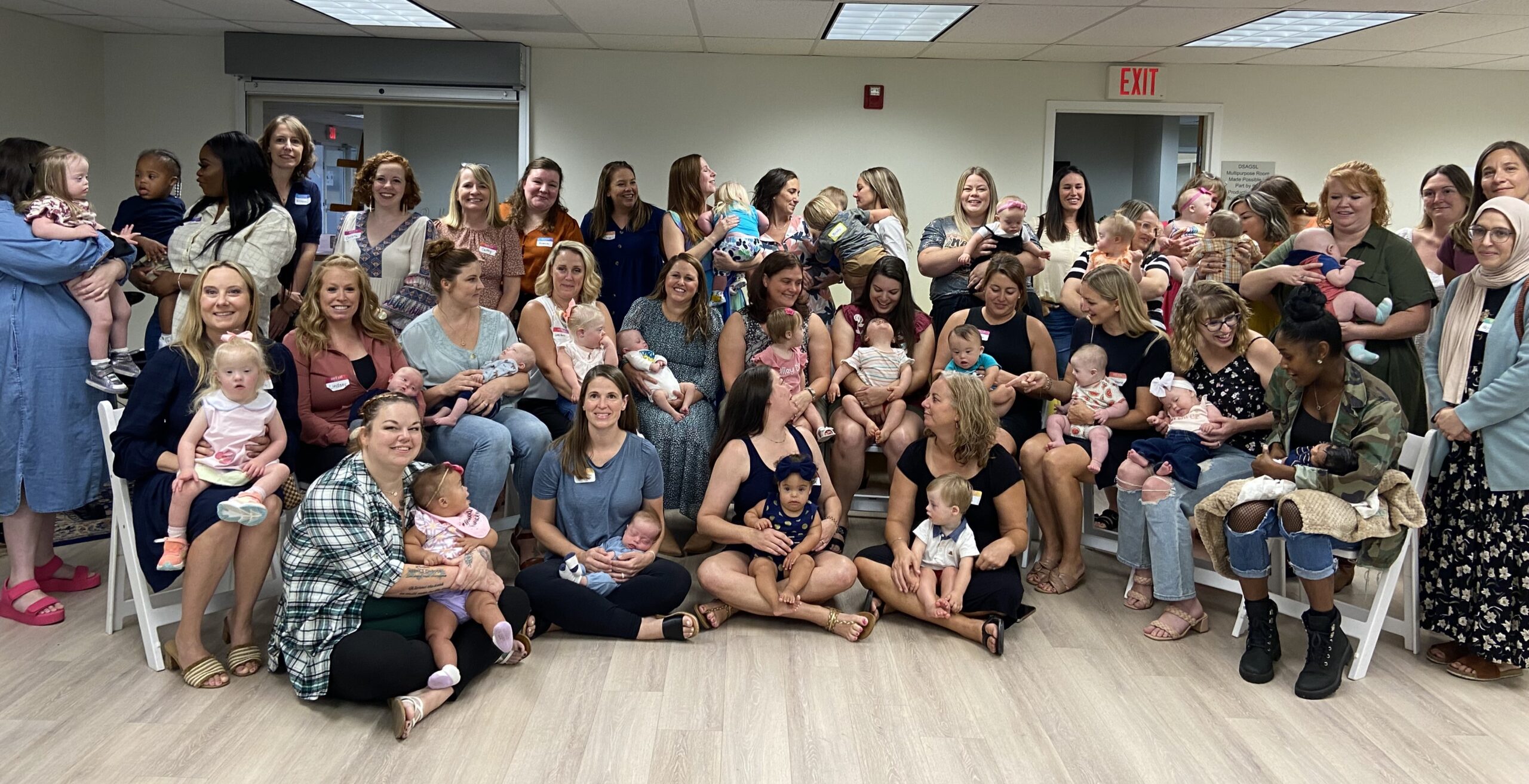
DAVID: How does GLOBAL’s advocacy, research, and medical care work make a difference to families in your community?
ERIN: We can do what we can on a local level. We have access to local, county, and state leaders to improve the lives of people with Down syndrome, but I don’t have the capacity as one person to go to the National Institutes of Health (NIH) to advocate for improved healthcare or improved funding of research. Nor is that the best use of my time—my time is about serving people in St. Louis. It’s important that organizations like GLOBAL exist to do that work. It’s good that Michelle, you and the GLOBAL team are at the NIH advocating, because you have the expertise and the access to professionals and the experts, and that is GLOBAL’s mission. That leaves me able to focus on the people in my region and rest assured that that federal advocacy work is taking place through an organization that is really equipped to do that work well. I would not be able to do it, so I’m really grateful to GLOBAL that you’ve made that your mission and that you’re doing it really well, taking it very seriously, and having the experts behind you.
DAVID: Do you have any advice for adults navigating the healthcare system?
ERIN: I think my advice would be that you have to come equipped with the knowledge and, in many cases, you have to educate your doctor, which is not the way that it should be. Hopefully, organizations like DSAGSL and GLOBAL can continue to help educate healthcare professionals, but for right now—especially if you live in rural communities or communities that don’t have a Down syndrome center or research university, you really do have to take it upon yourself. You have to arm yourself with the knowledge, best practices and things like the GLOBAL Adult Guideline, because your physician can’t always know everything. It’s also about finding a doctor who will listen to you. If you feel like your doctor is not taking you seriously and they’re not willing to listen to you and/or go the extra mile to learn outside of that 15-minute visit, then you have the wrong doctor and you need to find a better one. It should be a partnership. Even if they don’t know everything, they should be willing to learn, take you seriously and read the materials you bring them.
I also think that finding community through your Down syndrome association, connecting with other individuals with Down syndrome and their families, so you can share resources and recommendations on doctors, would be my advice. That’s also true for any kind of specialty care. We really have to advocate for ourselves.
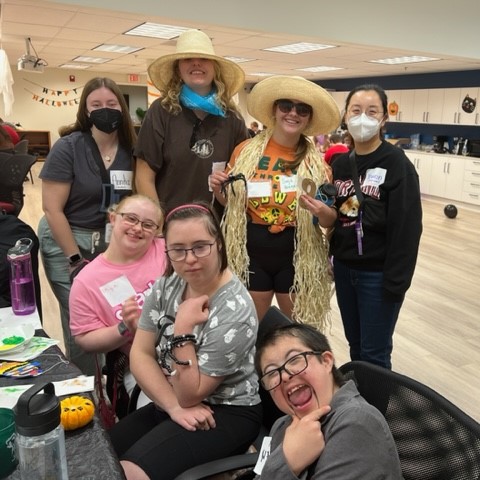
DAVID: What are your hopes for the future in healthcare?
ERIN: I think if I had to envision a perfect world as far as healthcare and Down syndrome are concerned, my goal would be that every physician would know about Down syndrome and would have gotten more education about it in medical school. We hear from doctors that they get 15 minutes to an hour during their entire medical training about Down syndrome, which needs to change because there are going to be more and more people living with Down syndrome. It’s not an uncommon condition, so why shouldn’t doctors know about it and have that be a part of their regular curriculum in medical school? A family shouldn’t have to go into a doctor’s visit and be an interface with a physician who has never learned about Down syndrome or even seen anybody with Down syndrome. That’s why in St. Louis I say our goal should be that everybody knows somebody with Down syndrome.
Every doctor should have the opportunity to meet someone with Down syndrome because then that diagnosis delivery will be better. It won’t be so heart-wrenching for families when they receive the diagnosis. Families won’t be discouraged, because they won’t have to go into a medical visit where the doctor doesn’t want to listen. Normalizing Down syndrome in the medical community means there can be more equitable care. We have a lot of work to do at the intersection of minorities and disabilities. The medical community needs to do better in treating people in traditionally underserved groups and in rural communities and that’s just magnified by someone having a disability. So, there’s a lot of work to be done.
DAVID: We’re very grateful for your time and for your support of GLOBAL’s work. Is there anything else you would like to share with our readers?
ERIN: It’s really exciting that we’re going to be celebrating our 50th anniversary in 2026!
DAVID: That’s wonderful!
ERIN: Yes, we have some really exciting things planned! Our success comes from our partnership and collaboration with other Down syndrome associations and national groups as well. The more we can support each other, the more we can lean on each other for the expertise that one another bring to the table or rely on someone who does something really well, like GLOBAL and the Adult Guideline, we’re all going to more successful as a result.
I really appreciate the national groups like GLOBAL and DSAIA that allow us to share, communicate and collaborate. I’ve learned so much from other organizations like yours and so many others across the country. I’m excited that GLOBAL is doing this piece on the local affiliates because there are a lot of really good associations across the country doing exciting work and making the world a better place!
Sleep Apnea Across the Lifespan in People with Down Syndrome
December 30th, 2023 by admin
Takeaways from a GLOBAL Webinar

Article from the award-winning Down Syndrome World™ magazine.
Learn more about our magazine, webinars and GLOBAL Membership benefits
Sleep Apnea Experts
Earlier this year, GLOBAL organized a webinar on sleep apnea that attracted 420 registrants from 43 states and 13 countries. The webinar covered the latest understanding of the importance of sleep screening across the age spectrum in people with Down syndrome, consequences of untreated sleep apnea, medical treatment options, and surgical treatment options including hypoglossal nerve stimulation.
Dr. Ignacio Tapia and Dr. Rachel Whelan co-presented the webinar, and the hour and fifteen minutes flew by! Dr. Tapia is an attending physician in the Sleep Center/Pulmonary Division of the Children’s Hospital of Philadelphia (CHOP) and Associate Professor in Pediatrics at the Perelman School of Medicine at the University of Pennsylvania. Dr. Tapia’s research interests are specific to Obstructive Sleep Apnea Syndrome (OSAS) in children, clinical trials to treat OSAS in children, health disparities around sleep and OSAS in individuals with Down syndrome. OSAS is the day-time sleepiness and fatigue associated with OSA.
Dr. Whelan is an Assistant Professor of Otolaryngology at the University of Pittsburgh Medical Center (UPMC) and specializes in the treatment of sleep disorders in pediatric and adult patients. She has dual fellowship training in both pediatric otolaryngology and sleep medicine through UPMC and the University of Pennsylvania/CHOP. Dr. Whelan has a particular focus in surgical treatment options for sleep-disordered breathing including nasal, pharyngeal, and neurostimulation surgeries and enjoys caring for patients across the age spectrum.
What is Obstructive Sleep Apnea?
According to the Mayo Clinic, Obstructive Sleep Apnea (OSA) is the most common sleep-related disorder and occurs when the throat muscles relax and block the airway repetitively during sleep. Essentially, people with OSA stop breathing, sometimes for more than 10 seconds, and then start breathing again which negatively affects their sleep and overall health.
In the United States, it is estimated that 15% of adult males and 5% of adult females have OSA, and that it affects 1-5% of all children. Obesity is an independent high-risk factor whereby upwards of 20% of adults and 70% of children with obesity were also diagnosed with OSA.
Generally, it is a bed partner or parent who identifies OSA since snoring is a key symptom. To be clear, many people snore and do not have OSA but snoring, restless sleep, uncommon sleep positions such as sit sleeping, night waking, audible pauses in breathing, dry mouth, headaches, daytime sleepiness, and behavioral problems including mood swings, are all symptoms that should be mentioned to a health care provider, as these may raise concern for possible sleep apnea.
Increased Risk in People with Down Syndrome
Drs. Tapia and Whelan both emphasized that people with Down syndrome are at significantly increased risk through their lifespan for developing OSA, with somewhere between 45-55% of individuals with Down syndrome having Obstructive Sleep Apnea Syndrome (the fatigue, cognitive deficit and behavior issues associated with poor sleep due to OSA).
The increased risk can be attributed to a combination of multiple factors:
- Anatomy
- Midface hypoplasia (narrowing of the upper airway and back of the nose)
- Glossoptosis and macroglossia (the tongue is larger relative to the jaw) and thus more likely to fall back and block the airflow in the back of the throat
- Hypotonia (low muscle tone) which also increases collapse of the upper airway
- Large tonsils and adenoid tissue in the back of the throat and nose, respectively
- Co-occurring obesity
- Hypothyroidism
Because of this significantly increased risk, the American Academy of Pediatrics (AAP) in the US recommends “evaluation” at age 6 months and a Polysomnography (PSG), overnight sleep study, by age 4 years. Currently there are no medical guidelines specific to adults with Down syndrome (guidelines for the general population are the default) but the Global Down Syndrome Foundation is working on their second edition of the GLOBAL Medical Care Guidelines for Adults with Down Syndrome that will expand five medical areas including recommendations for OSA.
Challenges for OSA Patients with Down Syndrome
Short term, untreated OSA in all patients results in fatigue and mood swings. According to Johns Hopkins University, this can manifest in daytime car accidents, loss of productivity at work, waking up groggy, falling asleep in class, and behavioral issues that make it difficult to study or pay attention to schoolwork.
It makes sense that lack of a deep sleep and poor-quality sleep is not good for you. But for OSA, the long-term consequences can be dire, including neurobehavioral deficits, increased risk of high blood pressure , metabolic issues such as diabetes, and a possible link with early onset of Alzheimer’s disease.
During the GLOBAL Webinar on sleep apnea, Dr. Tapia highlighted three key challenges that people with Down syndrome face with both the diagnosis and the treatment: (1) there are very few sleep labs (2) The sleep study test is challenging and the majority of children with Down syndrome don’t get the study despite the AAP guidelines, and (3) patients with Down syndrome have had difficulty with adhering to continuous positive airway pressure (CPAP) and many families feel it is unrealistic to expect adherence.
Dr. Tapia also spoke about people with Down syndrome not being invited to participate in research over the last few decades and how that has led to so many unknowns about sleep apnea in the Down syndrome community. He also kindly acknowledged GLOBAL’s great lobbying work in DC that led to the establishment of a National Institutes of Health (NIH) Down syndrome research funding program called INCLUDE.
Dr. Tapia shared that he has received two INCLUDE grants, one of which is targeted at proving that home sleep study tests are not only possible but preferable in children with Down syndrome. This could solve two of the key problems associated with diagnosis of OSA. The study tested 35 patients with Down syndrome between 10 and 20 years of age, and compared at home study results versus lab study results measuring tolerability, family-report sleep perceptions/experience, feasibility, and diagnostic accuracy for moderate-severe OSA.
The majority of participants felt that the home study test was easier and the overall ease of the setup of the home test was an aggregate score of 87%.
The results were recently published in the Journal of Clinical Sleep Medicine:
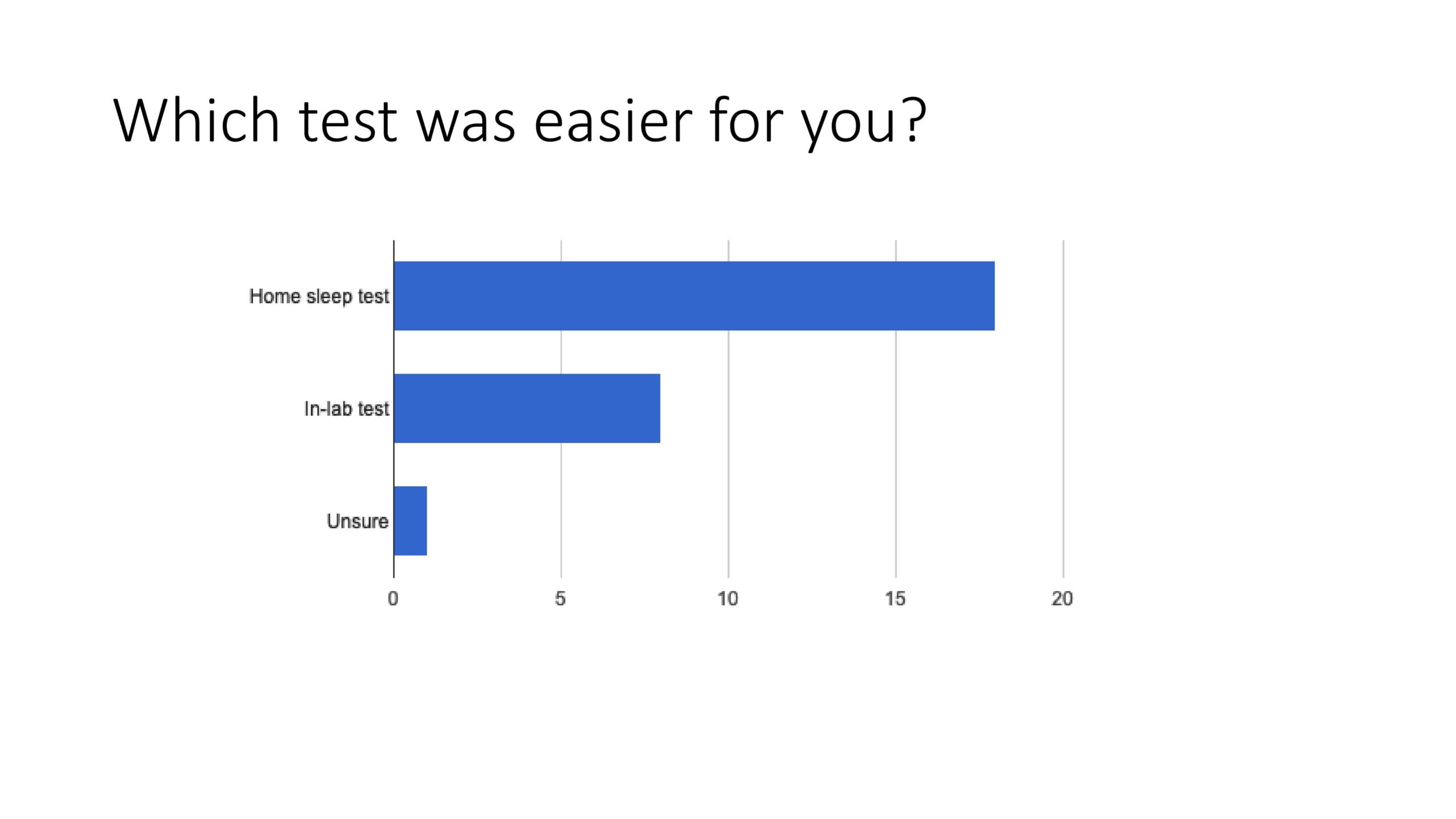
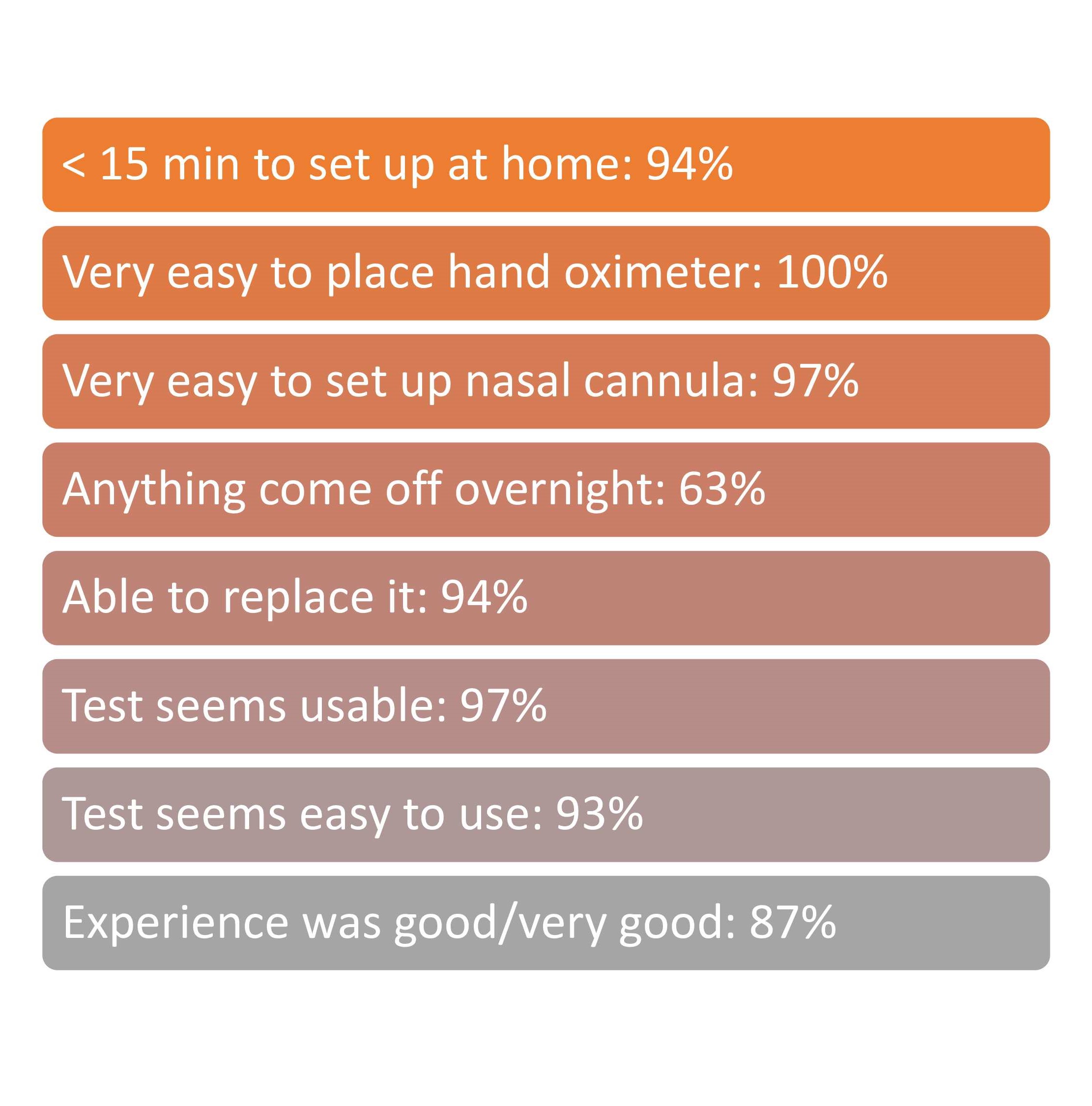
In terms of the accuracy, 78% of the home studies results correlated with the lab results on the obstructive apnea hypopnea index which is a very good score. Finally, the participants slept longer in the home study than during the lab study.
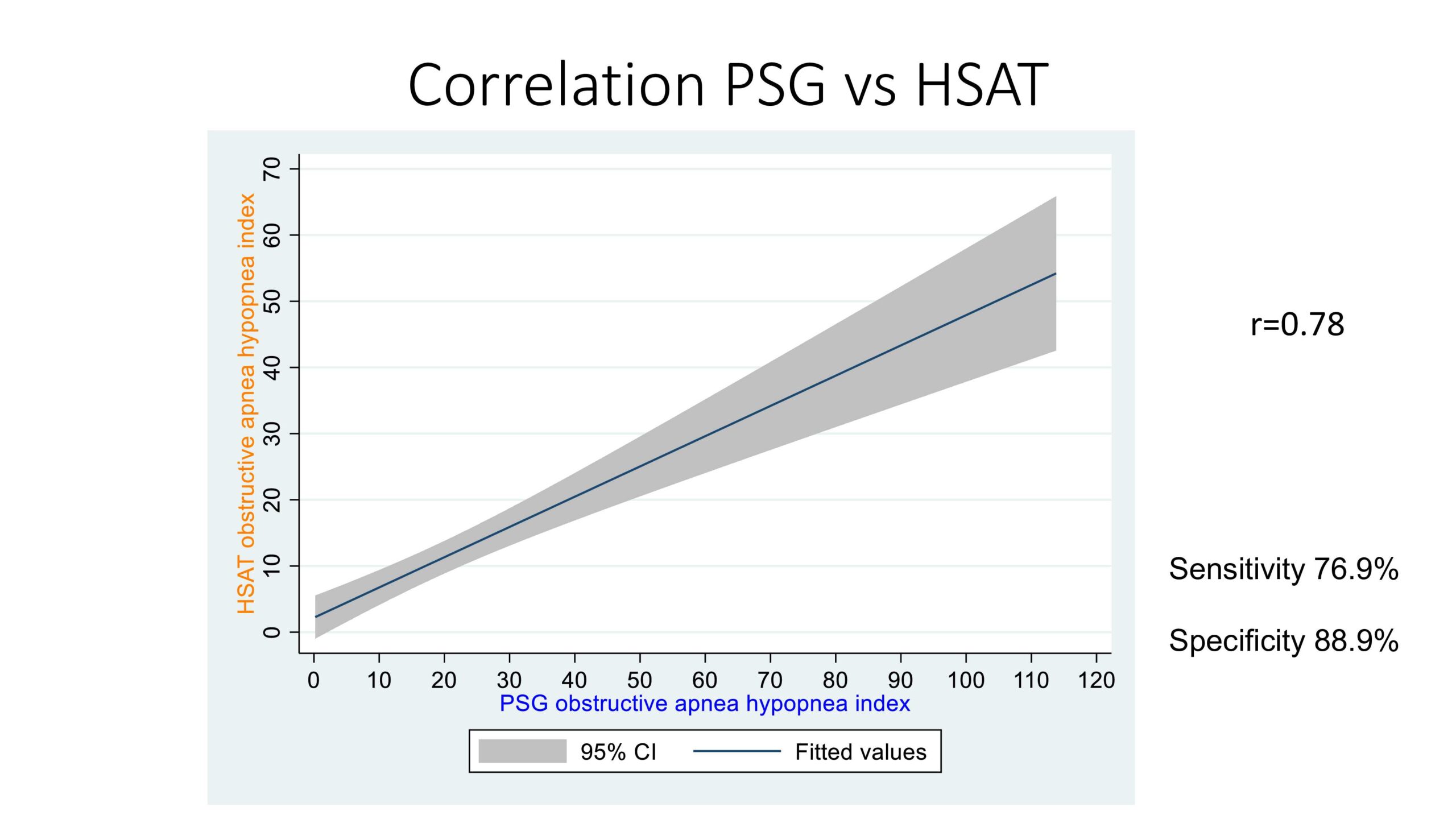
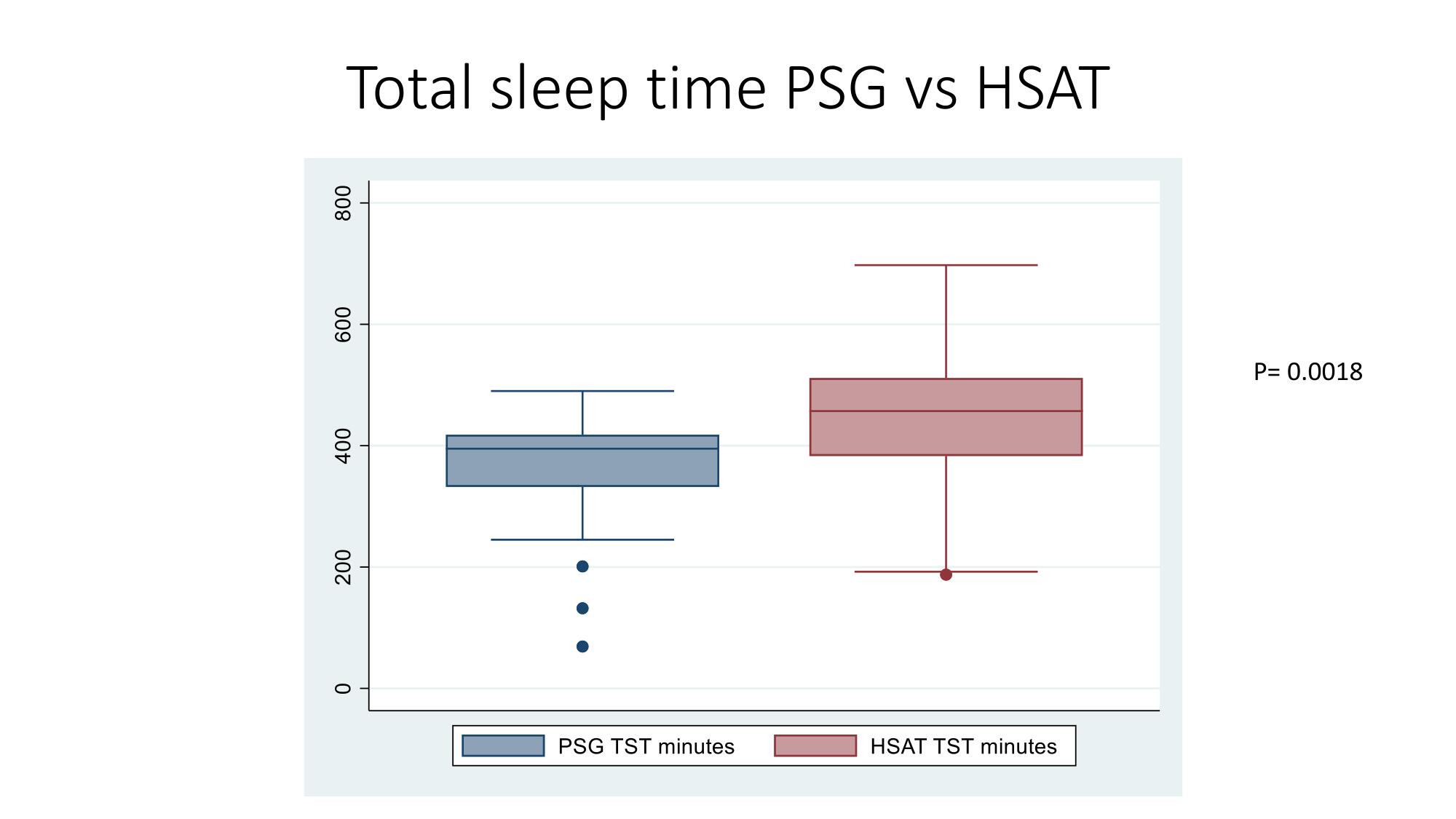
Dr. Tapia plans to continue his research and to address the following:
- What are the beliefs of families using CPAP or BiPAP over a most recent six-month period
- Strategies to increase PAP use
- Meet families where they are
- Bedtime routine
- Activities the child enjoys
- Role modeling
He concluded that families and patients with Down syndrome should redouble their efforts and engage a behavior specialist as his team is seeing a lot of success in patients with Down syndrome using the CPAP and making a huge difference in the patients’ energy level, focus and ability to participate more fully in all areas of life.
Treatment of OSA in Patients with Down Syndrome
Dr. Whelan, who is a sleep surgeon treating OSA in the general population as well as children and adults with Down syndrome, discussed treatment options for OSA. She discussed that continuous positive airway pressure (CPAP) is generally the first-line therapy in most adults with OSA. This works by delivering continuous pressure through the nose and/or mouth during the night to keep the upper airway open. While CPAP can be a challenge to acclimate to, CPAP may prove to ultimately be a very effective and well-tolerated treatment option for both children and adults with Down syndrome and OSA. If considering a trial of CPAP for your loved one, it is strongly advised to work with not only a sleep physician, but also a team that includes a behavioral sleep psychologist to help acclimate well to this new device.
Dr. Whelan discussed that different than in adults, the first-line of treatment for children with OSA in the United States is oftentimes Tonsillectomy & Adenoidectomy, removing the tonsils and adenoids by surgery.
While this surgery significantly improves or cures OSA in about 50% of children with Down syndrome, that still leaves about 50% of patients still having persistent OSA even after surgery. Because each patient has unique anatomy that leads to OSA, additional surgery is sometimes considered, including trimming or reshaping tissues in the nose, tongue, back of the throat, and/or around the voice box. Additional surgical options including weight-loss surgery (bariatric surgery) or skeletal surgery to expand the upper and/or lower jaws may also be considered.
Dr. Whelan agrees that the ongoing social stories sharing success around CPAP and BiPAP adherence is a wonderful success story for our community!
New Kid on the Block – Hypoglossal Nerve Stimulation
For non-obese patients that cannot tolerate CPAP or BPAP therapy, hypoglossal nerve stimulation (HNS) has become the newest surgical option to potentially treat OSA in patients with Down syndrome.
Dr. Whelan explained that HNS is like a pacemaker for sleep apnea and is a device inserted into a patient’s chest. There is another incision that sits under the chin and a wire is tunneled under the skin of the neck to connect the two parts of the device. It senses every breath the patient takes and sends electrical stimulations to push the tongue forward so that it does not fall back and block airflow in the back of the throat.
Hypoglossal nerve stimulation surgery is specifically for patients who have not had success with CPAP and who are not obese.
Adolescents with Down syndrome who have received HNS implants have overall done quite well. For the first 20 such patients there was significant improvement in OSA measures (pausing in breathing a median of 24 times per hour down to 3 times per hour) and improvements in speech, cognition, and school performance.
Based on this data, the Federal Drug Administration (FDA) recently approved HNS for 13 years or older patients with Down syndrome with moderate to severe OSA who have tried PAP and have not been successful with it. It is interesting to note that FDA approval in the general population is 18 years and older.
There are other important considerations regarding HNS implantation:
- The battery life generally lasts 10-12 years so patients require essentially one surgery each decade to replace the battery.
- MRI compatibility – while there is full body MRI compatibility with the current version of the device, this is a consideration for any patients that have medical conditions that will require frequent MR imaging.
- If patients gain weight, the device generally becomes less effective.
- Any time there is hardware, there are risks of infection or electronic failure of the device, which would require removing it.
Clinical trials to determine which patients respond best to this therapy are ongoing. Currently, there are five sites nationally enrolling adolescent patients with Down syndrome and OSA and looking at neurocognitive outcomes (focus, attention, executive function) before and after HNS implantation.
Dr. Whelan agrees that the current NIH INCLUDE funding is making a huge difference, allowing clinical researchers such as herself and Dr. Tapia to ask important questions about treatment such as:
- What are the patient centered outcomes and is there associated, appropriate neurobehavioral testing?
- What is the difference in daytime functioning?
- What is the difference in quality of life?
- Are there cardiometabolic outcomes?
- What are the family-centered outcome results?
- What are the risks/benefits for diagnosis and treatment?
Conclusions
Patients with Down syndrome are at high risk for sleep apnea. Obesity creates an even higher risk for OSA as well as other diseases so we should do our best to create healthy lifestyles and choices.
Detecting and treating OSA early and effectively can make a big difference in short-term health including behavior, attention and energy, as well as help limit serious long-term health issues such as heart disease, stroke risk and diabetes.
A sleep study is the only way to diagnose OSA and Dr. Tapia’s research is hoping to allow us to perform home sleep study tests rather than requiring an in-lab study, even in children with OSA.
To date, CPAP is the best way to treat OSA and great strides have been made in terms of behavioral interventions that allow children and adults with Down syndrome to tolerate a CPAP machine successfully.
For those who do not have a BMI in the obese range and have not had success with CPAP or BiPAP, there is a new treatment called Hypoglossal nerve stimulation that is very promising.
It is wonderful to envision a future where people with Down syndrome are allowed to and are willing to participate in long-term studies associated with OSA and sleep so that we can create better diagnosis, treatments, treatment supports and amazing health outcomes!
GLOSSARY
Adenotonsillectomy – An adenotonsillectomy is an operation to remove both the adenoids and tonsils; in other words a tonsillectomy and an adenoidectomy done at the same time
CPAP – Continuous positive airway pressure masks and head gear; the most common way to treat Obstructive Sleep Apnea (OSA)
BiPAP/BPAP – Bilevel positive airway pressure is a machine that helps you breathe; the most common way to treat Central Sleep Apnea (CSA), complex sleep apnea or chronic obstructive pulmonary disease (COPD) but can also be used to treat OSA
Glossoptosis – when the tongue is positioned further back in the mouth than normal; Abnormal posterior motion of tongue during sleep leading to OSA
Hypoglossal nerve stimulation – is a treatment for OSA using an implant to stimulate a nerve under the tongue to prevent the tongue from blocking the airway. As of 2023, the only hypoglossal nerve stimulator that is approved by the FDA is the Inspire device.
Hypoplasia – incomplete development or underdevelopment of an organ or tissue.
Hypothyroidism – also called underactive thyroid, is when the thyroid gland doesn’t make enough thyroid hormones to meet your body’s needs; The thyroid is a small, butterfly-shaped gland in the front of your neck
Hypotonia – decreased muscle tone
Midface hypoplasia – when the upper jaw, cheekbones and eye sockets have not grown as much as the rest of the face.
Polysomnography (PSG) – an overnight sleep study used to diagnose sleep disorders, recording
Obstructive Sleep Apnea Syndrome (OSAS) – excessive daytime sleepiness caused by OSA
brain waves, oxygen levels in your blood, your heart rate and movement
Government Profiles: Robert Aderholt (R-AL) & Tammy Baldwin (D-WI)
November 29th, 2023 by admin
ROBERT ADERHOLT (R-AL)
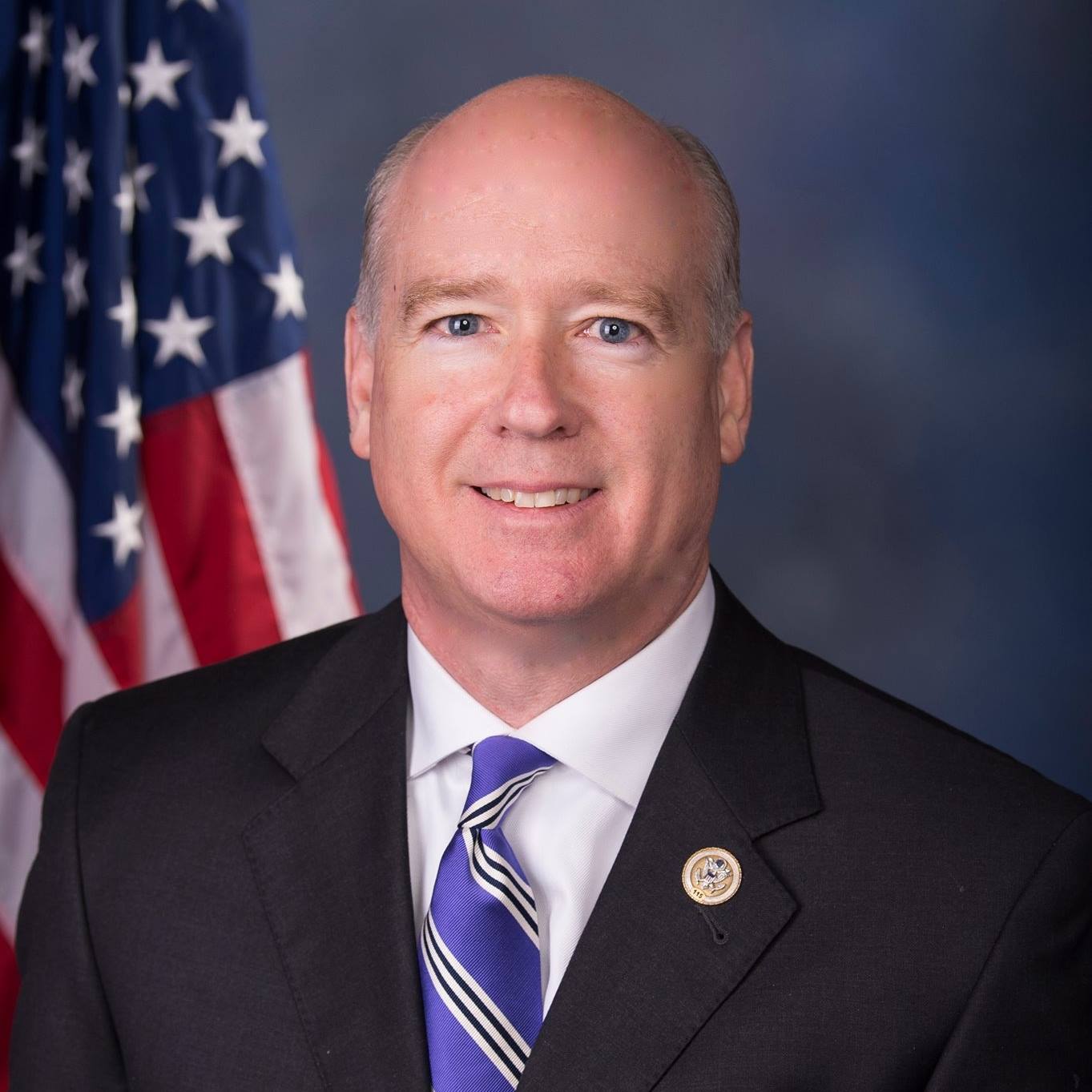
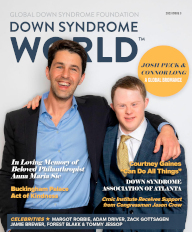
Bi-Partisan Support for Down Syndrome!
Government Profiles from the award-winning Down Syndrome World™ magazine.
Learn more about our magazine, webinars and GLOBAL Membership benefits
Common-Sense Solutions for Alabama
In his 14th term representing Alabama’s fourth congressional district, Robert Aderholt is an advocate for fiscal responsibility, truth in budgeting and federal government operating within its means.Robert Aderholt is a strong supporter of his community, district and the state of Alabama. He believes the federal government serves an essential role in assisting state and local governments with economic development.
From his position on the powerful House Appropriations Committee, Rep. Aderholt supports job creation, strong immigration standards and robust national security. He is the Chairman of the Appropriations Subcommittee on Labor, Health & Human Services and Education, which is responsible for the largest non-defense portion of the entire federal budget. He is also a member of the Commerce, Justice and Science Subcommittee and the Defense Subcommittee.
Rep. Aderholt also chairs the Values Action Team, a Congressional Member Organization in the House of Representatives focused on promoting families, communities and religious freedoms.
Additionally, Rep. Aderholt is a member of the Commission on Security and Cooperation in Europe. Commonly known as the Helenski Commission, the group was founded in 1976 and is comprised of 56 countries around the world working together to monitor human rights in Europe and Central Asia.
Rep. Aderholt is a member of the U.S. Congressional Down Syndrome Caucus and continues to support the disabled community through his efforts to sustain and prolong the viability of our Social Security system.
TAMMY BALDWIN (D-WI)
Driving the Nation Forward
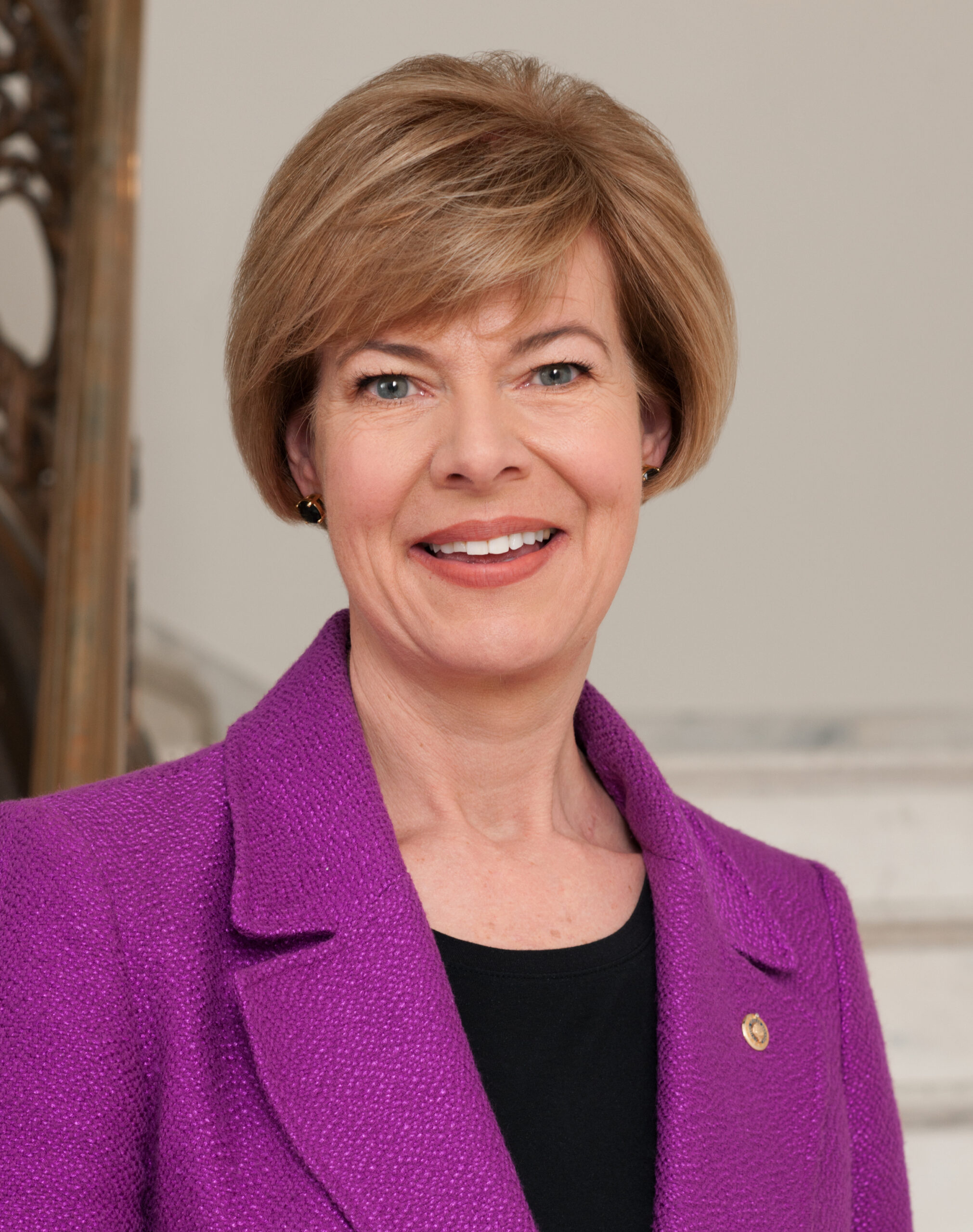
Tammy Baldwin was elected Wisconsin’s first female congressional representative in 1998 and went on to become the state’s first female senator and the country’s first openly gay senator in 2012.
Senator Baldwin has dedicated her career in public
service to fighting for fairness, equality and economic opportunity for all. She was introduced to the inequities in our healthcare system at 9 years old when she was diagnosed with a serious illness and her grandparents, who were also her guardians, were unable to list her on their insurance. Baldwin’s grandparents were forced to pay out of pocket for her treatment and were subsequently unable to purchase any health insurance for her because she was labeled with a preexisting condition.
Years later, Baldwin went on to champion the Affordable Care Act, which protects Americans from being denied health insurance coverage because of a preexisting condition.
In 2021, Baldwin joined colleagues to introduce the Better Care for Better Jobs Act, which expanded access to home- and community-based services for seniors, people with disabilities and injured workers, while increasing pay and improving benefits for caregivers.
Baldwin is committed to working across party lines to strengthen the pillars of economic security for working families: investments in education and workforce readiness, a strong “Made in Wisconsin” manufacturing and agriculture economy, and quality healthcare for all Americans.
Senator Baldwin serves on the Senate Committee on Health, Education, Labor and Pensions, the Senate Committee on Commerce, Science, and Transportation and the Senate Appropriations Committee. She is also Chair of the Senate Appropriations Subcommittee on Agriculture, Rural Development, Food and Drug Administration and Related Agencies.

Connor Long & Josh Peck: A GLOBAL Bromance
October 31st, 2023 by admin
The two wildly accomplished young men bond over a shared motto: “I don’t do nervous. I do excited and I do prepared.”
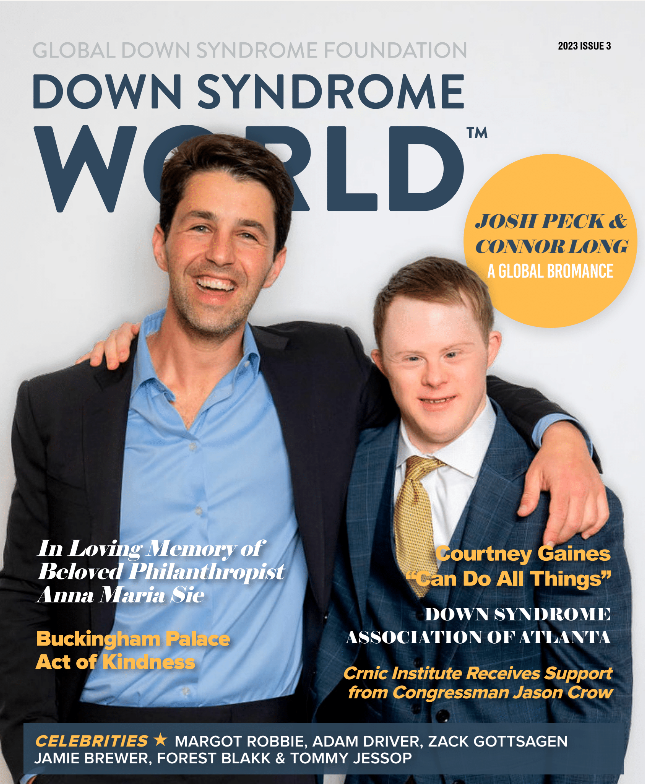
From Down Syndrome World Issue 3, 2023
Last year’s Be Beautiful Be Yourself Fashion Show brought together two celebrities— alum Connor Long and newcomer Josh Peck. Paired for a red-carpet photo shoot, the two bonded instantly and the chemistry was off the charts— the photos speak for themselves! Almost a year later, Josh and Connor remember their time together as unusually organic and an absolute blast.
“I think we could have stood there for another hour,” Josh recalls with a smile in his voice. “We asked for a couple more backdrops, but they didn’t have ‘em.”
Connor was happy to share that the feeling was mutual.
“Josh was amazingly nice and incredibly fun to be around,” says Connor, “he would be great to work with! Hint, hint.”
It’s easy to see why the two hit it off— they’re both incredibly good-natured, not to mention well-rounded, dedicated professionals, who are successful in their work. Connor is a stage, screen and voice actor, Emmy award-winning journalist, athlete, speaker and self-advocate, and Josh is a beloved actor, comedian, author, and social media influencer. While they both come from very loving environments, their upbringings were remarkably different.
Connor grew up in Maryland with his parents and sister Karlyn before moving to Colorado when he was young. For as long as Connor can remember, he enjoyed opportunities to thrive in school and in sports and employed his stellar work ethic to make the most of them. When adversity did rear its head, Connor’s parents were there to advocate on his behalf.
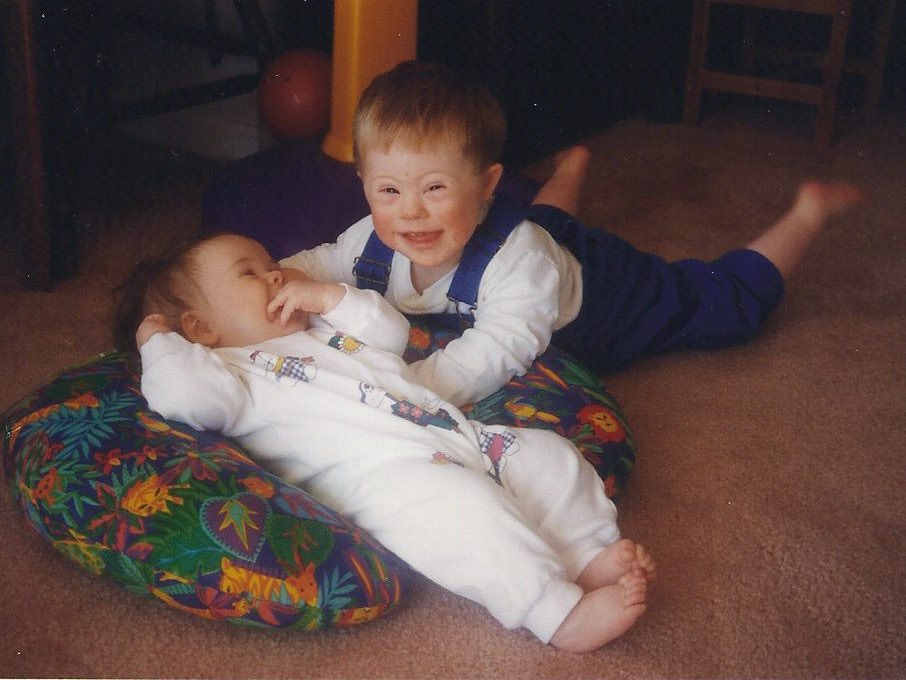
Josh was raised as an only child in New York City by a devoted single mother who has always unrelentingly insisted that he has “the sparkle” for show business. By age 10, Josh had an agent and was performing matinee stand-up sets at iconic New York comedy clubs like Caroline’s. He spent his teen years in Los Angeles making the country laugh on Nickelodeon’s The Amanda Show and Drake & Josh.
What Connor and Josh do share, in addition to rich resumes and palpable charisma, is a deep resonance with Connor’s personal motto: “I don’t do nervous. I do excited and I do prepared.”
RISING TO THE OCCASION
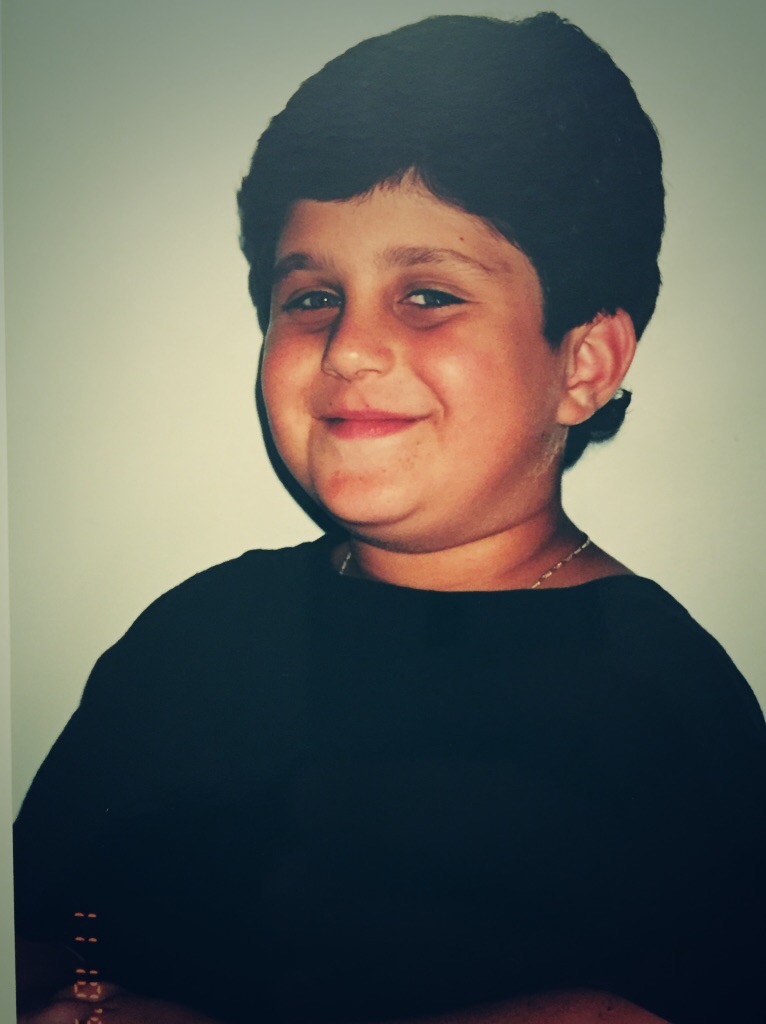
Connor credits that mindset as a crucial aid to his many forms of success, from performing and public speaking to competitive swimming and learning taekwondo. Lately, he’s enjoyed flexing his skills and has started to do voice work for film and public service announcements. He voiced the audible.com version of his essay in the Channel Kindness book with iconic musical artist Lady Gaga and voiced an English dub of Blood & Gold, a foreign feature film that was a global number one on Netflix. Each time, he was excited, prepared, and, ultimately, a hit. The well-rounded performer also just finished a full Shakespeare production of A Midsummer’s Night Dream with the renowned Phamaly Theater Company— an exciting project for such a big Shakespeare fan as Connor, who even visited London’s Globe Theater last year.
Similarly, when Josh was cast as physicist Kenneth Bainbridge in Christopher Nolan’s 2023 film, Oppenheimer, he was ecstatic to be working alongside some of the industry’s best. To him, hitting a home run meant blending in with the likes of Cillian Murphy, Florence Pugh, Robert Downy Jr., Emily Blunt, and Matt Damon – and he knew what would be the key to success.
“It was an opportunity to get so prepared,” he says, “and do so much research.”
It’s a tactic Josh embraced over his years in show business, though not without a healthy amount of stumbles—learning experiences—along the way. Acting and comedy was his dream, but it wasn’t always comfortable or easy. Especially not at first.
ACCEPTING THE LEARNING CURVES
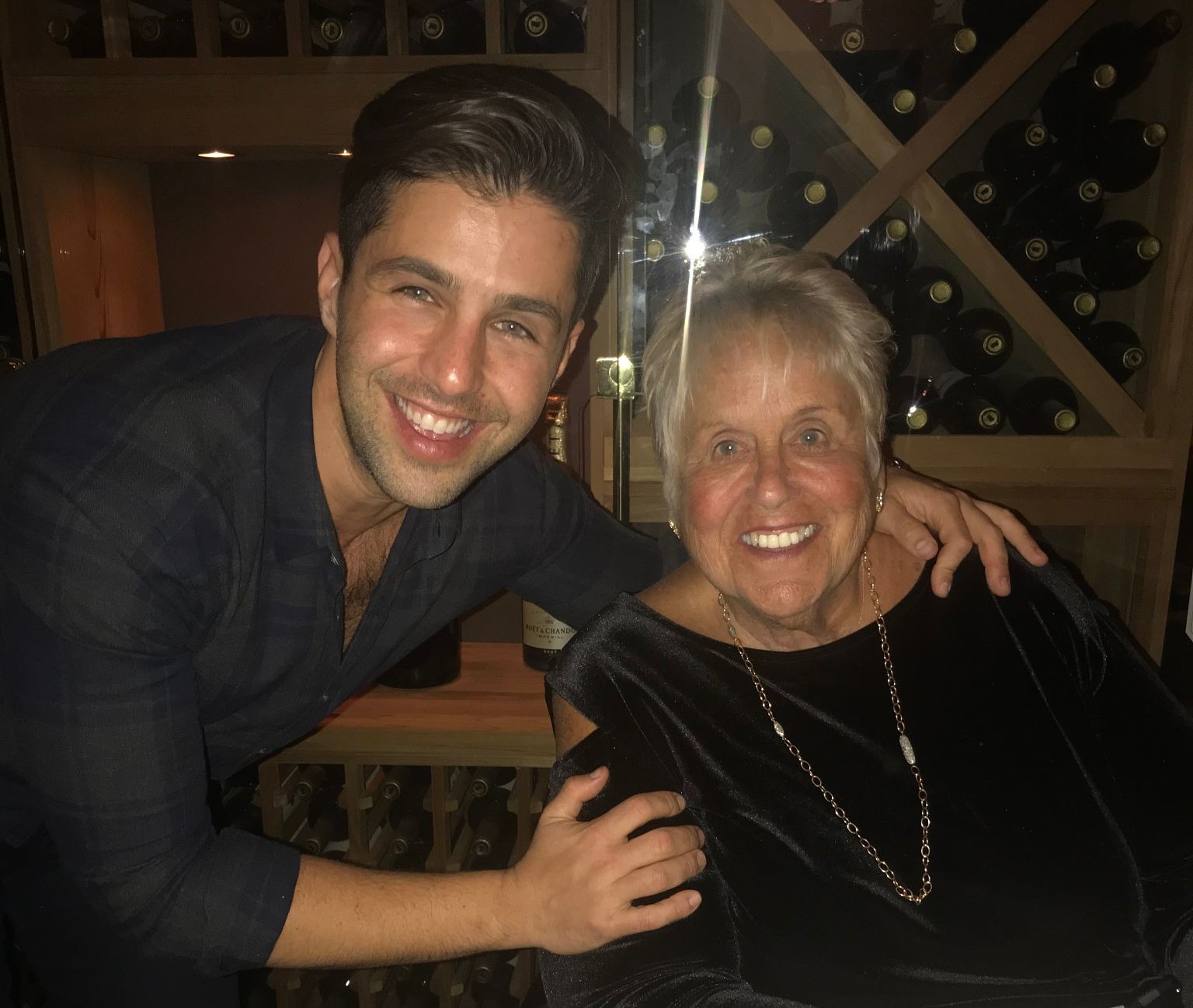
“It was terrifying,” Josh admits, “it still is. I think the only difference between now and then is that now I know if I bomb or if the joke doesn’t go over well, somehow, someway, I will survive. Because I’ve walked through that before, where I’ve completely face-planted and lived to fight another day.”
Because I’ve walked through that before, where I’ve completely face-planted and lived to fight another day.”
“I’ve come to realize what that fear is and how there are two types.” He continues, “When I’m prepared, it’s readiness and adrenaline— sort of a priming mechanism. And those were the times I didn’t fall on my face. That’s very different from the kind of fear and anxiety in those moments when I wasn’t prepared.”
Connor agrees that success seldom comes without plenty of learning curves and bumps in the road.
“It’s hard work developing the skills to be on stage or in front of the camera, and there is a lot of work that goes into finding and pursuing film, stage
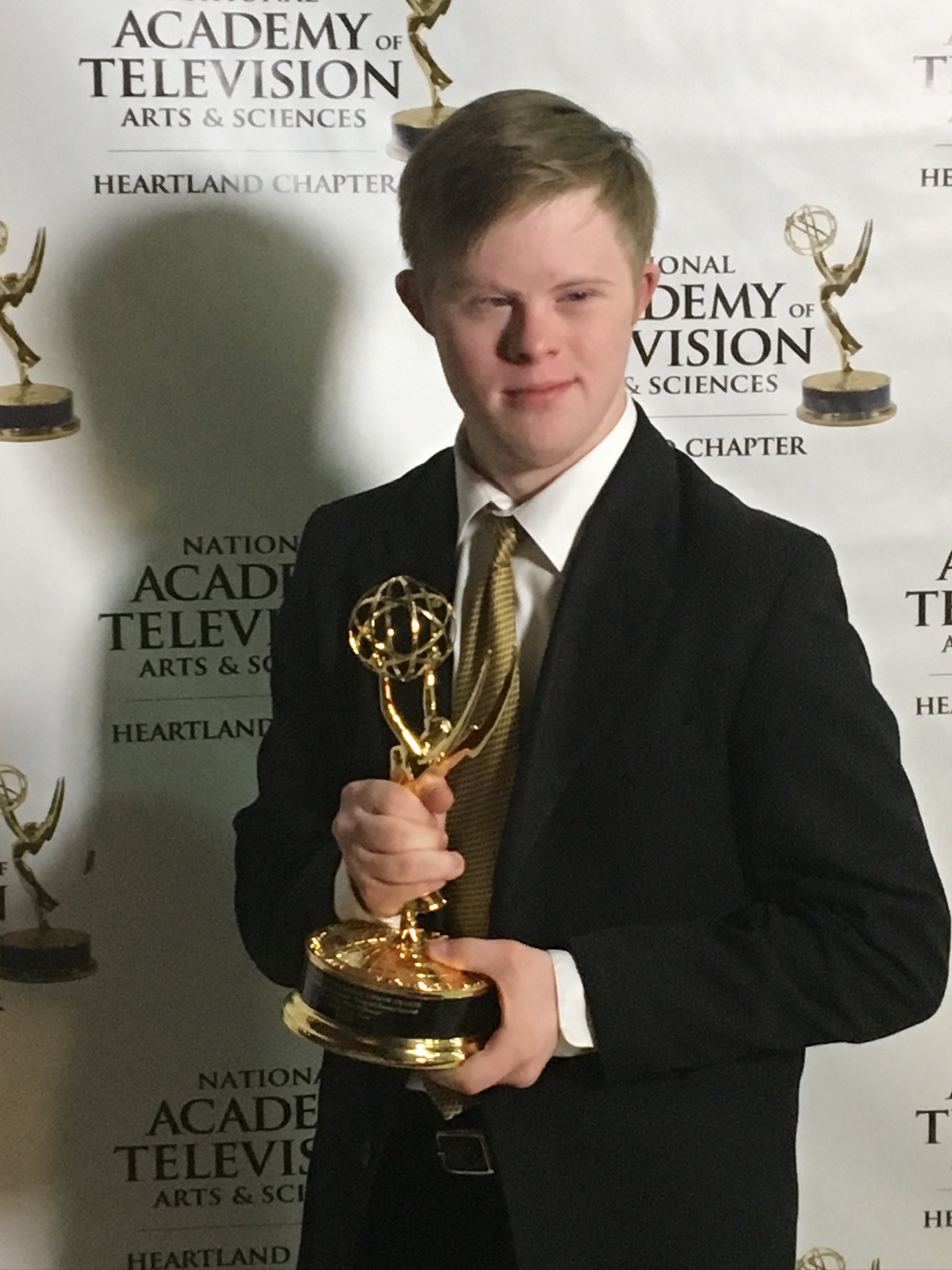
or speaking opportunities.” He counsels, “My advice is to be prepared and excited, not nervous. Keep a positive attitude!”
Josh also stresses the importance of maintaining a healthy love of the craft itself.
“The results— like booking a role— are so out of our control.” He explains, “But if you love the process of acting, the preparation, the execution, getting to tell a story— if it really turns you on and makes you excited, then I think you’re in great shape.”
Connor knows exactly what Josh means— it’s his passion for storytelling that led him to join the Denver 7 News team as a contributing reporter alongside fellow self-advocate Hannah Atkinson. Their hard work and magic touch earned them each an Emmy, making them the first-ever people with Intellectual and Developmental Disabilities to earn the award. The Emmy trophy that resides on Connor’s mantle reminds him of the reports he and Hannah delivered, and that there are many more stories to tell.
ALL FOR HONESTY & VISIBILITY
Self-advocates who have been formally recognized for their work hold the door open for fellow performers with disabilities. Thanks to talents like Connor, Zack Gottsagen, Jamie Brewer, and Madison Tevlin, just to name a few, viewers are finally getting to experience the creative capabilities of people with Down syndrome. Josh, for one, deeply appreciates the diversity, depth of knowledge and insights actors with different abilities bring to projects.
“I love watching honesty,” he says, “like when performers with disabilities bring their experience, which is so unique to them. When that comes out in a performance, it really draws you in. The more of that we see, the better.”
PAYING IT FORWARD

Often, we can trace the inception of our favorite artists, activists, and role models back to the support they received for their dreams early on. The multi-talented Connor Long is no exception.
“I’ve had so many teachers, therapists and advocates support my interests and encourage me to give my time and energy to important causes.”
And the number of organizations and causes that Connor supports is impressive. He’s spoken at the US Embassy in (pre-war) Moscow, New York University, the Arc Catalyst Awards, and many times throughout Colorado. Dedicated to making a difference for his community, he draws from his lived experiences and pays it forward. For example, Connor, like many people with Down syndrome, considers himself a late bloomer when it comes to his cycling skills. At 16 years old, he participated in a specialized learn-to-ride camp with ICanBike. He honed the skill one year before GLOBAL launched its Dare to Ride cycling initiative, which raises funds and awareness for the Sie Center for Down Syndrome at Children’s Hospital Colorado. Ten years later, Connor is a Dare to Ride Courage Classic team captain, clocking hundreds of miles in training before completing 30+ mile rides in the name of Down syndrome research and medical care. He received the GLOBAL Community Service Award for this important initiative.
“My dad/riding partner and I have helped raise more than $500,000 for various charities and I always look forward to playing a role as a volunteer.”
ADVOCACY WITH ATTITUDE
The Be Beautiful Be Yourself Fashion Show is perhaps a perfect avenue for anyone with a knack for showmanship, like Connor and Josh, to engage in high-impact advocacy for Down syndrome research and medical care. When Josh took the Be Beautiful Be Yourself stage for the first time alongside models Timmy Frazier and Sinai Alexander, no one could suggest he was remotely unexcited or unprepared! The three men lit up the stage in what became one of the most memorable runway walks the event had ever seen. Josh brought infectious energy that funneled the spotlight onto Tim and Sinai, serving as the perfect hype-man by engaging the crowd and acting as the models’ personal paparazzi. No surprise they received a standing ovation.
“When you’re working with teenagers, you never know how comfortable they’re going to be in front of a crowd,” Josh says, “to see how hard they worked, how down they were to just ham it up,
and the way I was able to capture all these great videos as we were doing it— it was such a fun and memorable experience…I think we gave Paris Fashion Week a run for their money!”
A FUTURE AS BRIGHT AS THEIR SMILES
What’s up next? Josh is fresh off his promotion of the massive hit film, Oppenheimer, and is spending time giving back by speaking at Southern Illinois University and other educational institutions. He’s also circulating funny photos and posts about how he nearly was cast as Edward Cullen in the Twilight franchise.
Connor has been busy as well. His voice lessons have paid off and he’s singing the national anthem at various Colorado sports events including Denver Nuggets games. He’s also wondering (hint, hint) when Josh will help him get his first big Hollywood part!
Connor and Josh prove every day that when you approach challenges as opportunities— when you’re excited and prepared— there’s little you can’t accomplish. And the benefits of this life philosophy are always clearly visible in their beautiful and authentic smiles.
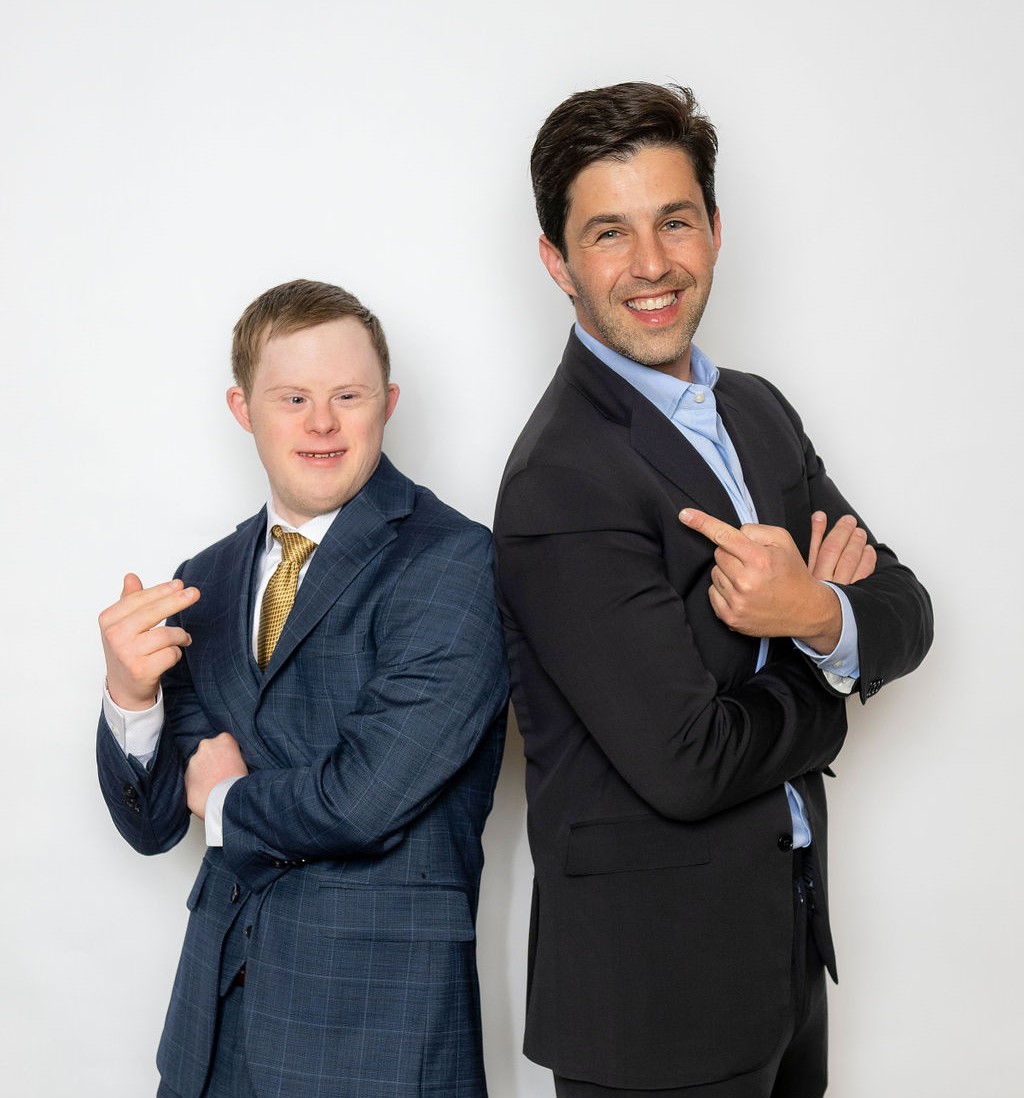

GLOBAL Launches Pilot Fitness Program using Mann Method PT
August 3rd, 2023 by Global Down Syndrome Foundation
Mann Method PT is a 1-hour biweekly fitness program that focuses on increasing strength, balance, and cardiovascular health in participants using a variety of evidence-based exercises. The program follows the Mann Method PT and is taught by individuals trained by Sarah Mann PT, DPT, MBA, NSCA-CPT. Participants complete an intake assessment when beginning the program and are re-evaluated after 8 weeks to measure their overall progress. Participants also have the option to join in a weekly social dinner outing each Friday, and discuss healthy, post-workout food choices. Participation is free.
Rosa DeLauro and Tom Cole GLOBAL Advancement Awards Given to Two Inspiring Individuals with Down Syndrome at GLOBAL’s AcceptAbility Gala
July 25th, 2023 by admin
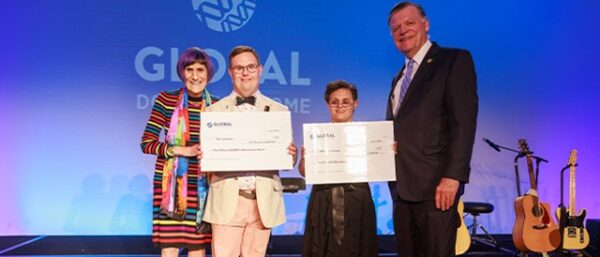
(pictured L-R) Congresswoman Rosa DeLauro, Awardee Eric Latcheran, Awardee Melissa Silverman, Congressman Tom Cole
In a heartwarming celebration of talent, perseverance, and advocacy, the Global Down Syndrome Foundation (GLOBAL) recognized the remarkable accomplishments of two extraordinary individuals with Down syndrome at the 2023 AcceptAbility Gala in Washington, DC. Eric Latcheran and Melissa Silverman were honored with the inaugural Rosa DeLauro and Tom Cole GLOBAL Advancement Awards to support their continuing education.
At the AcceptAbility Gala, GLOBAL recognized the transformative leadership of Representatives Rosa DeLauro and Tom Cole by unveiling post-secondary awards in their names. This gesture highlights their unwavering dedication to advancing the rights and opportunities for individuals with Down syndrome. The Rosa DeLauro and Tom Cole GLOBAL Advancement Awards will continue to inspire and support future generations in their pursuit of furthering their education and personal growth.
Eric Latcheran: Inaugural Rosa DeLauro GLOBAL Advancement Award Recipient
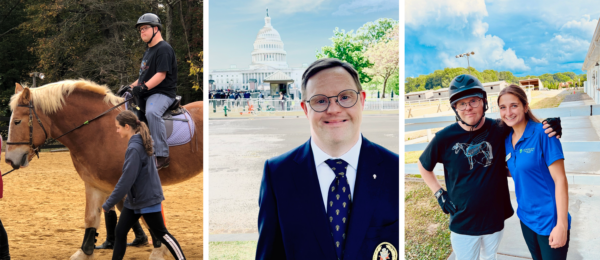
Eric, a shining example of resilience and determination, was bestowed with the inaugural Rosa DeLauro GLOBAL Advancement Award. This accolade serves as a testament to his exceptional achievements and serves to motivate others in their pursuit of personal growth. Eric’s tenacity knows no bounds, and he has consistently defied expectations.
With his award, Eric has chosen to pursue therapeutic horseback riding, a venture that aligns with his passion for animals and holistic well-being. Equine therapy has been known to improve physical strength, balance, and emotional well-being in individuals with Down syndrome, making it an ideal choice for Eric to further enhance his personal development.
Melissa Silverman: Inaugural Tom Cole GLOBAL Advancement Award Recipient
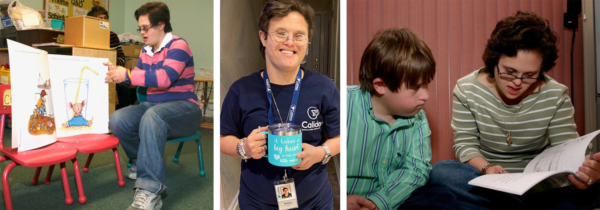
Melissa, a beacon of inspiration and fortitude, has been honored as the recipient of the inaugural Tom Cole GLOBAL Advancement Award. Her unwavering commitment to personal growth and the betterment of her community has earned her this prestigious recognition.
Melissa will utilize her award to maintain her 90-hour childcare certification. With a profound love for nurturing and supporting children, she understands the significance of quality care and aims to provide the best environment for their growth and development. Melissa’s dedication to her certification exemplifies her commitment to lifelong learning and her unyielding pursuit of excellence.
Eric and Melissa, two remarkable individuals with Down syndrome, have been rightfully honored by GLOBAL with the inaugural Rosa DeLauro and Tom Cole Advancement Awards for their exceptional achievements. These awards serve as a reminder of the limitless potential that lies within every person, regardless of their abilities. Eric’s choice of therapeutic horseback riding and Melissa’s commitment to maintaining her childcare certification reflect their dedication to personal growth and making a positive impact on their communities. Let us celebrate their accomplishments and be inspired by their unwavering determination to overcome barriers and continue to thrive.
See more highlights of the 2023 AcceptAbility Gala here!
Estate Planning for Families Who Have a Loved One with Down Syndrome
June 16th, 2023 by admin
Hal Wright is the author of the must-read book ‘The Complete Guide to Creating A Special Needs Life Plan.’ After 27 years in finance, Hal became a beloved Certified Financial Planner specializing in planning for those with special needs. He is now retired but active on the speaking circuit.
From Down Syndrome World Issue 1, 2023
This is for families who have a loved one with Down syndrome— a child, a brother, a sister, a grandchild or perhaps a friend. I will primarily address the social aspects of estate planning without going into the legal or financial aspects, except that I will briefly address the role of a special needs trust in an estate plan. I also want to emphasize the importance of end-of-life care planning for a person with Down syndrome.
I have a daughter with Down syndrome in her mid-thirties. She has lived in her own apartment for ten years, independently with supports. A “child” in this article doesn’t mean someone under age 18. My daughter will be my child no matter how old she is.
ESTATE PLANNING 101
Estate planning is for anyone who has something valuable to leave to a loved one. By something valuable I mean real estate such as a house, financial assets such as retirement savings, death benefits from a life insurance policy, collectibles such as art, and so forth. Basically, anything that can be titled, valued, sold, or cashed in should be considered a potential element of an estate. Obviously wealthier families who own valuable property, a business or who
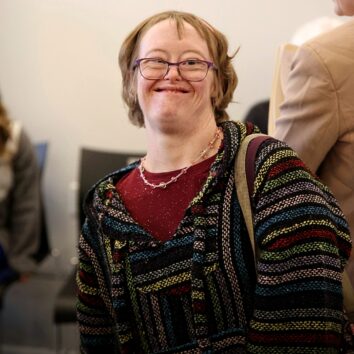
have substantial wealth will have complicated estate plans. However, even a family that has nothing to leave but love should consider how that love will be expressed and passed on. For them, a life plan for their child is a truly valuable legacy.
All parents should have a life plan for a child with special needs that describes the parents’ wishes for the child and the child’s wishes for themselves. The plan includes what is necessary to make it possible, that is, the resources and supports. All financial and legal plans, including estate plans, start with a life plan. A family’s financial plan and the parents’ retirement and estate plans must consider the cost of the child’s lifetime support and how to provide for it. There are five things you do to create a sustainable plan:
1. Develop a life plan and update it periodically for changes in circumstances. Pay special attention to major life transitions like aging out of school or the death of a parent.
2. Establish a circle of support to manage the life plan through all the years of the child’s life. This is especially important should the child outlive her parents.
3. Teach the life skills for community participation and maximum independence.
4. Write a letter of intent (LOI) to document the life plan including the arrangements you have made for care and support after you pass away. The LOI guides the people in the circle of support.
5. Decide on the forms of protection and oversight that the child will require when you’re no longer able to care for him yourself. This could be a court-appointed guardian whom you choose, personal advocates, agents holding powers of attorney and fiduciaries for managing money.
ACCOUNT FOR UNEXPECTED CIRCUMSTANCES
Too often inadequate consideration is given to how a plan evolves as the child ages. There are two important considerations to plan for.
First, parents should consider the possibility that their child could outlive them, especially if one parent dies or both die prematurely. Adequate life insurance is almost always a “must have” to the extent affordable. People with Down syndrome have shorter life spans than the wider population. Currently their life expectancy is around sixty years of age . (A life expectancy means half of the people will die earlier and half will die later than that age.) However, women who are over thirty-five years old have a higher chance of having a baby with Down syndrome than those who are under thirty-five. Thus, it is quite possible that a baby will outlive middle-aged parents if the child remains healthy throughout life. My daughter will likely outlive me, perhaps by fifteen years. She may outlive my spouse, Eleanor, who could well live into her nineties. However, Eleanor will likely experience the diminishments of aging (perhaps dementia) at an earlier age at the same time our daughter is needing greater care.
The second consideration, and the most tragic, is Alzheimer’s disease, the symptoms of which begin to appear in many adults with Down syndrome in their mid-fifties. Over fifty percent of people with Down syndrome will show symptoms by age 55. Therefore, and I cannot stress this enough, planning for the end-of-life care for someone with Down syndrome due to early onset dementia is something you must do. If your child is an adult, you cannot count on a medical miracle that will lift this scourge from our loved ones. While organizations like the Crnic Institute for Down Syndrome and the Global Down Syndrome Foundation are making progress, biologists and medical researchers have searched unsuccessfully for a cure for AIDS for over 40 years. Same with cancer.
It is quite possible that an individual who shows symptoms at age 55 could live for another six or seven years. In that span he may progress from care in an assisted living facility to eventually moving into a cognitive custodial care or skilled nursing facility. The problem is how to pay for the cost. Quality care is very expensive. Most parents plan, or perhaps only hope, they will take care of their child in their old age. This can become seriously unrealistic as they age and experience physical or cognitive decline or a serious disease themselves.
WHAT IS THE COST OF LONG-TERM CARE?
How expensive is the cost of care in a facility? In Denver, Colorado, the average cost of a private room in an assisted living facility in 2023 will likely range from $70,000 to $75,000 per year. (Costs as well as the quality of care vary widely.) Cognitive custodial care for dementia is around $90,000 annually. A private room in a skilled nursing facility is in the range of $130,000 a year. This presents a serious challenge for most families planning for their child’s end-of-life care. How can people pay such huge expenses over a five to seven year period?
Medicare does not cover the cost of long term care in a facility. Medicare is the federal health insurance program for people who are 65 or older, who have amyotrophic lateral sclerosis or end stage kidney failure, or who have received Social Security Disability benefits for twenty-four consecutive months.
What then, are the options?
Wealthy families will pay for the highest quality care. About ten percent of the American population are affluent enough to do so.
About twenty-five percent of the aging population has long term care insurance (LTCI) to cover the cost. Not surprisingly, it is impossible to get LTCI for a child with a disability.
Medicaid is a joint federal and state program that provides health coverage to people with low income. Medicaid pays about two-thirds of long-term care costs in this country because people either haven’t planned for it, they never had the financial means to buy insurance (it’s expensive), or they haven’t been able to save enough to pay for the care themselves. Anyone who has ever had a loved one, such as a parent, in a Medicaid facility will not want their child to end their lives in one if they can help it because of the problems with quality of care and concerns about abuse and neglect.
The considerations just described are why parents who have a child with special needs should be very serious about estate planning. An essential element of their estate plan will include an adequately funded trust to ensure the child’s (the beneficiary’s) lifetime financial support. Wealthy families will usually create a disability trust. Less affluent families will create a special needs trust which allows parents to leave money for their child’s support without affecting eligibility for means-tested government assistance such as Supplemental Security Income (SSI), Medicaid, and the Home and Community Based Services programs for persons with disabilities (HCBS, also called Medicaid-waiver). The two most common ways for funding a trust are regular contributions to a trust during life and life insurance. Life insurance is the most common way trusts are funded. Many use both. I use both.
Pre-funding end-of-life care for a child with Down syndrome will be, or certainly should be, a significant consideration in funding a trust. The costs of care will likely be in the range of a few to several hundred thousand dollars depending on when and how you fund the trust. This is why adequate life insurance is a must for most families.
Special needs planning includes a wide range of sophisticated and complex issues. Parents can and should do life planning themselves with assistance in areas such as social services and education. Most families will need professional advice for legal and financial planning. It is straight forward to find attorneys to draft legal documents such as personal wills and trusts. These attorneys practice in the domains of Elder Law and Trusts and Estates Law. It is harder to find financial planners who are knowledgeable, experienced, and ethical. I strongly recommend Certified Financial Planners or CFPs. I encourage you to work with a financial planner before you go to a life insurance agent. You should know what you need, not what someone wants to sell you.
WHERE DO YOU GO FROM HERE?
I have hit a few major considerations in special needs planning, but this article only scratches the surface. When I give presentations to parents and families, I leave them with: “Where do you go from here?” So I leave you with this. I have written a book on the subject: The Complete Guide to Creating a Special Needs Life Plan. Published in 2013, it explains how to create a comprehensive plan integrating the life, resource, financial and legal plans into a practical plan of action. When it was published, the Library Journal, the journal for professional librarians, gave it a red star review (meaning recommended for library acquisition) with the verdict: “Essential.” It still sells on Amazon. It is 360 pages in length with four, twenty-five-page case studies to show readers what a realistic plan looks like.
Although ten years old, it remains relevant today. If I were to update for a second edition, I would add a chapter titled: “A Home of Her Own: Supported Independence.” I passionately believe that supported independence for most adults with Down syndrome is a realistic goal with adequate planning, resources (including financial), and a good life plan.
I’ll close with a thought for those who are financially well-off enough to leave a substantial legacy. Most people think first about those they love – their spouse, their children, their grandchildren or a loved one like a brother or sister. However, some may want to consider a legacy to a charity or institution that has made a meaningful contribution to your child with Down syndrome’s well-being.
My daughter is in a race against time, a race between the clock as she ages and the medical professionals searching for a way to block the amyloid-β protein path, the significant contributor to the development of Alzheimer’s Disease.
I put this forth for my daughter’s sake and perhaps yours. Please consider in your estate planning, if you have the means to do so, a contribution to fund the research to stop this vicious disease and lift this scourge from our children.
GLOBAL Receives AADMD “Local Hero” Award
May 5th, 2023 by admin
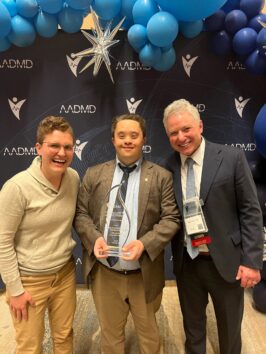 The Global Down Syndrome Foundation is attending and presenting at the 21st annual American Academy of Developmental Medicine & Dentistry (AADMD) One Voice Conference, May 4-7, at the Westin Denver International Airport
The Global Down Syndrome Foundation is attending and presenting at the 21st annual American Academy of Developmental Medicine & Dentistry (AADMD) One Voice Conference, May 4-7, at the Westin Denver International Airport
Today, May 5, 2023, GLOBAL and self-advocate Taylor Shelsta will graciously accept the AADMD “Local Hero” award recognizing the outstanding work and dedication to inclusive health exhibited in the groundbreaking Medical Care Guidelines for Adults with Down Syndrome (GLOBAL Adult Guideline). The GLOBAL Adult Guideline provides first-in-kind, evidence-based medical recommendations to support clinicians in their care of adults with Down syndrome. An accessible family-friendly version for non-medical professionals is available for free download on the GLOBAL website.
“GLOBAL is honored to receive AADMD’s Local Hero award,” says Bryn Gelaro. “Dr. Tyler and many other AADMD members were a pivotal resource for us when creating the GLOBAL Medical Care Guidelines for Adults with Down Syndrome. Together, we are taking steps towards making healthcare a more inclusive place for adults with Down syndrome.”
GLOBAL Research & Medical Care senior director Bryn Gelaro was joined by the AADMD president and GLOBAL Guideline author, Dr. Carl Tyler, the medical director for Denver Health and GLOBAL Adult Down Syndrome Pilot Clinic, Dr. Barry Martin, and GLOBAL self-advocate, Connor Long, to present GLOBAL’s Adult Guideline. The panel titled “Show Me the Evidence! Newest Health Care Guidelines for Adults with Down syndrome” took place today from 1:40 PM to 2:40 PM MST.
The 2023 AADMD One Voice Conference is centered around navigating uncertainty and preparing for inclusive care in any circumstance. The four-day conference had various panels and breakout sessions discussing how to prepare for, pivot and pilot inclusive health.
GLOBAL is honored to be partnering with AADMD on various projects that will help medical professionals, self-advocates and families access valuable resources that will inform quality medical care practices for people with Down syndrome.
Strength, Stability, Balance, Endurance
January 31st, 2023 by Global Down Syndrome Foundation
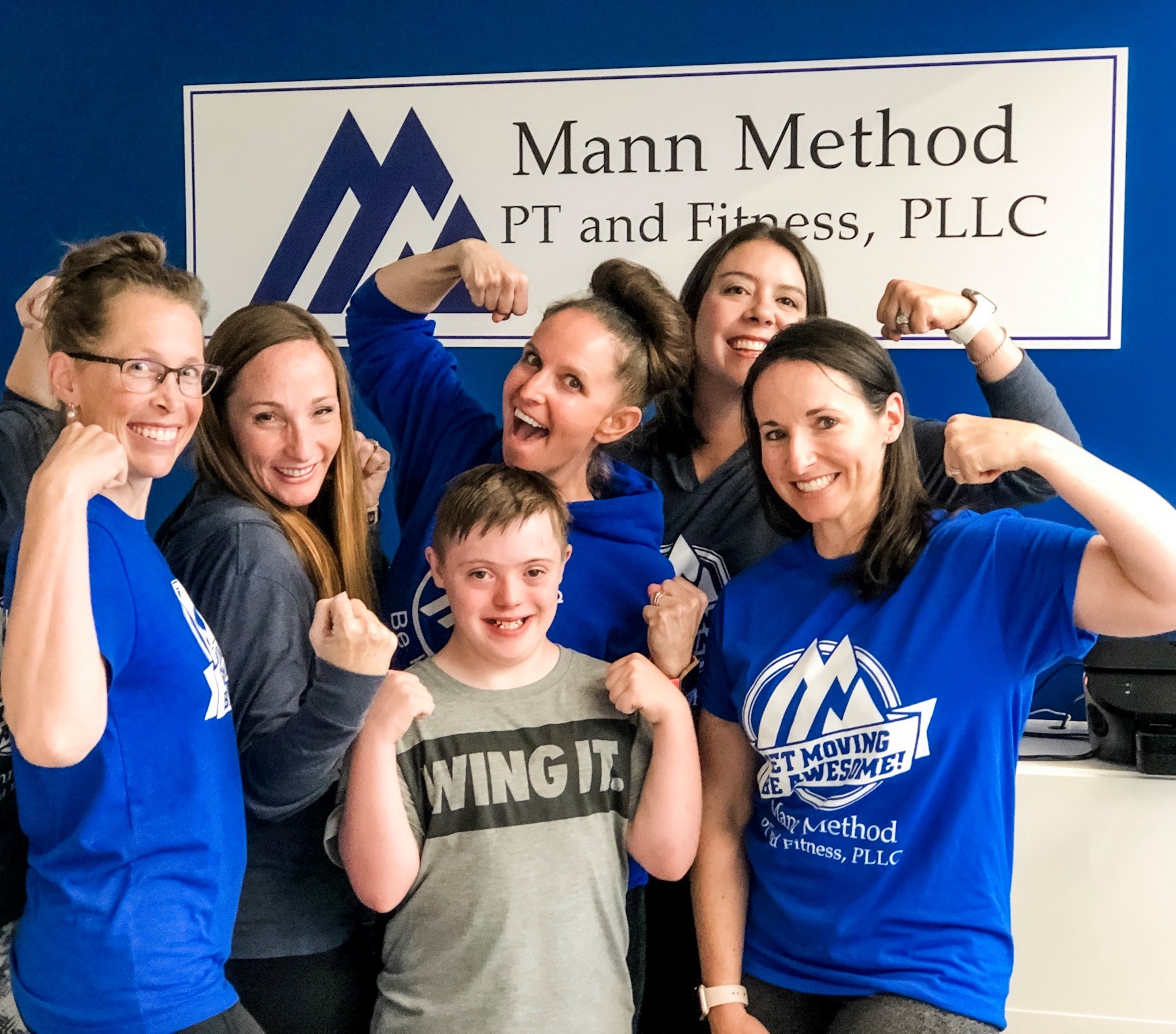
Physical therapists share preventative PT techniques for people with Down syndrome
From Down Syndrome World Issue 3, 2021
“Often times people think of physical therapy (PT) as a place to recover from an injury, like learning to walk after a broken leg. Physical therapy is unique in that we can help when things are hurting, but also provide targeted interventions with the purpose of prevention,” says physical therapist Dr. Sarah Mann, PT, DPT, MBA, NSCA-CPT, founder and CEO of Mann Method PT and Fitness, PLLC and Mann Therapies. “With PT, we encourage listening to the body and taking early action to create healthy and sustainable habits that, over time, can reduce potential problems in the future.”
People with Down syndrome have a unique physiology that impacts their musculoskeletal and cardiovascular systems. Characteristics such as low resting muscle tone, flat feet, joint instability, and low cardiovascular endurance can cause problems like obesity, joint pain, and fatigue. PT addresses physical issues at their root level, first building on the underlying foundational motor skills and then honing those skills to strengthen specific areas of the body. Results include healthier weight management, increased strength, improved balance, increased bone density, improved bowel movements, decreased rates of arthritis and osteoporosis, and ultimately lower levels of pain and fatigue. In turn, this leads to increased motivation for physical activity, improved social functioning with peers, and overall sense of well-being.
Down syndrome physical therapy experts Dr. Sarah Mann, Dr. Patricia Shimanek, and Dr. Kia Mattison share their PT strategies and techniques to address common physical issues experienced by individuals with Down syndrome.
Strength, Stability, Balance, Endurance
“Movement should be purposeful,” says Dr. Mann, who emphasizes four key training areas in her PT method: Strength, Stability, Balance, and Endurance. “After working with hundreds of individuals with Down syndrome and learning how they often respond to various exercises, I find that exercise programs combining these four categories are the most effective in addressing impairments and helping prevent future complications.”
Her physical therapy program, called the Mann Method™, combines foundational movements, hip strengthening, vestibular, and cardiovascular training to focus on multi-joint movements that activate the feet, knees, hips, trunk, and core. Foundational exercises like squats help build muscle and improve function, while balance exercises like lateral tilts help improve weight shift for walking. Progressive sequencing through these various exercises helps build cardiovascular endurance.
“Repetition is a great way to ingrain certain movements into muscle memory,” says Dr. Patricia Shimanek, PT, DPT, an orthopedist at Advocate Aurora General Hospital and mother to a 25-year-old son with Down syndrome. “When my son does push-ups, for example, sometimes he will arch his back too much or hyperextend his elbows. The more he practices the correct form, the better he is able to recognize when and how he needs to move his body to get there.”
Start with the Feet!
Before attending your first PT session, the experts advise to first check your feet! 91% percent of people with Down syndrome have a flat-foot position, which can cause painful misalignments, bad posture, joint pain, and poor proprioception (awareness of body position and movement).
“A reason a lot of adolescents complain of knee pain may be because they’re wearing the wrong footwear. When your foot hits the ground, if it’s not contacting the ground appropriately, it changes the mechanics all the way up effecting the knee, hips, back, and neck,” says Dr. Shimanek. “A quick change in shoes can make a world of difference, helping them to stand up a bit taller, keep their head up, and improve musculoskeletal strength.”
There are many orthotic support options that can be added to your shoes, such as cushion insoles, custom arch supports, and more. If shoe supports do not provide enough stability, PTs can also evaluate for higher level orthotic needs.
Techniques
“Consistency is hugely important to a successful PT program,” says Dr. Kia Mattison, PT, DPT, Director of Physical Therapy at Cobblestone Therapy Group in Roswell, Georgia. “With children, it helps to develop a reward system that encourages this, such as a couple of PT exercises means a couple minutes of playtime. The PT should also collaborate with the patient’s full care team to ensure routines are being practiced and reinforced in various settings.”
Dr. Mattison also advises taking things slow. “Take things one step at a time to allow the individual to gain a mastery of one step before moving onto the next one,” she says. “However, progress takes time and can build slowly over several weeks or months. Make sure to celebrate all the milestones big and small!”
Drs. Mann, Shimanek, and Mattison agree that physical therapy is a lifetime investment. It is not meant to be a temporary intervention that fixes a problem, but instead a training process that builds skills and improves functioning over time.
GET MOVING!
See below exercise modules from GLOBAL’s Webinar with Dr. Sarah Mann “Strength, Stability, Balance, and Endurance – Purposeful PT for Teens and Adults with Down Syndrome.”
To learn more, visit…
Mann Method PT: www.mannmethodpdt.com
Cobblestone Therapy Group: cobblestonetherapy.com/physical-therapist
GLOBAL’s PT Webinar with Sarah Mann: globaldownsyndrome.org/global-webinar-series-spring-2021
Like this article? Join Global Down Syndrome Foundation’s Membership program today to receive 4 issues of the quarterly award-winning publication, plus access to 4 seasonal educational Webinar Series, and eligibility to apply for Global’s Employment and Educational Grants.
Register today at downsyndromeworld.org!
Going for Gold: Elana Meyers Taylor & Nico Taylor
January 10th, 2023 by Global Down Syndrome Foundation
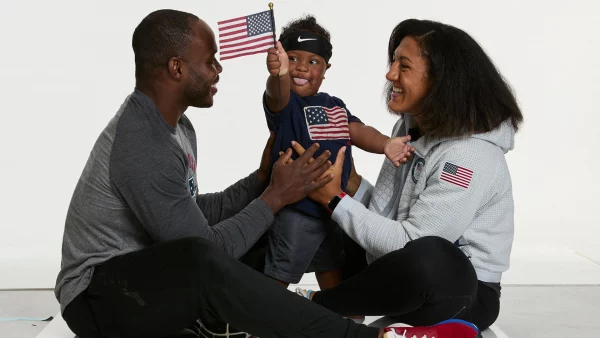
From Down Syndrome World Issue 3, 2022
ELANA MEYERS TAYLOR, has collected numerous inspiring accolades throughout her life. She is perhaps most known for making history in the 2022 Beijing Olympics, receiving her fifth medal (she has three silver and two bronze) in bobsledding. Taylor is the most decorated black Olympic winter sports athlete and the most decorated U.S. Olympic bobsledder of all time. This is an impressive feat for anyone to accomplish, and Elana did it all while raising her beautiful son, Nico, who has Down syndrome.
Like most children, Elana had big dreams for her future at a young age. Since seeing the 1996 Summer Olympic Games in her hometown of Atlanta, Georgia, she knew she wanted to be the one standing on the podium one day. A renaissance athlete, she participated in sports throughout her childhood and well into adulthood. As a kid, she played softball, basketball, track & field, and soccer, all with the intention of becoming an Olympic athlete one day. She went on to play collegiate softball at George Washington University and played professionally after college as well. With all this work building toward her dream of becoming an Olympian, Elana felt immense pressure during her tryout for the US Olympic Softball team. “I put the weight of the world on me and just completely choked.” Taylor stated, “I just couldn’t handle the pressure and thought it was going to be my only chance to live my dream.” This setback allowed her to set her sights on a new sport to carry her to the Olympics.
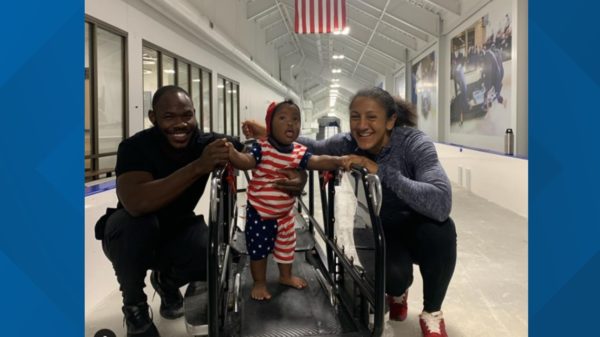
Taylor’s parents, Eddie and Janet Meyers, suggested she check out bobsledding as an option, and even though she knew nothing about the sport, she decided to give it a shot. Her natural athleticism propelled her through the first round of trials where she could then hone her technical skills to make her a strong competitor in bobsledding. After competing in the U.S. National Team trials and World Cup tour, she qualified to race in the World Championship race within her first year as a brakeman.
Her triumph in the World Championship races as a brakeman allowed her to start racing in the front seat as a driver, and from there she began her legacy as a bobsled icon, making her debut on the U.S. bobsled team at the 2010 Vancouver Olympics. She has continued to compete in the two-woman and Monobob races at the Olympic level, and even qualified to race on the men’s four-man bobsled team!
Elana’s story of success in making her way to the Olympics and earning such honorable titles along the way is admirable on its own, but her work does not stop there. Elana is a devoted advocate for women of color competing in the Olympics and uses her 5-medal status to get her foot in the door and initiate change at a higher level. “Other people like to scream and shout and, you know, take to social media and stuff like that. That’s not really my cup of tea.” She prefers to do her work behind the scenes by having these difficult conversations about equity for women of color in sports with the higher-ups in the Olympic committees, pushing for that positive change. It is clear, that Elana has a passion for advocacy and creating space for marginalized groups to excel, and this passion grew even stronger with the birth of her first son, Nico.
Becoming a Mother and an Olympic Athlete
Amid the rise of her Olympic career, Taylor and her husband, fellow Team USA bobsledder Nicholas Taylor, became pregnant with their first child, Nico, who was born at the start of the COVID-19 pandemic in 2020. Following her silver medal-winning run at the 2018 Winter Olympic Games in Pyeongchang, Taylor was unsure if she wanted to compete in another Olympics. She was already a 3-time medal winner and was feeling content with the progress she has already made in her bobsled career. “You can only be driven so much by a gold medal,” stated Taylor. However, the news of her pregnancy sparked a new kind of motivation in Taylor that she did not quite expect. Competing at the Olympic level while navigating pregnancy and becoming a first-time parent was a new challenge that she was determined to take on.
Elana and her husband continued training throughout her pregnancy, adapting a garage in their apartment building into a home gym to get their training schedule back on track. Less than 6 months after Nico was born, Elana was already working towards making the U.S. National Team and eventually competing in the 2022 Winter Olympics. Nico was along for the ride every step of the way, traveling to Lake Placid with his mother to train and cheering her on from the sidelines at competitions across the globe.
Wherever Elana was, Nico went too. She wanted to show the world that just because she is now a mother, let alone a mother of a child who is differently-abled, she is still a force to be reckoned with in her sport. Her new-found motivation from her son and desire to prove to the world that motherhood does not have to thwart a lifetime of progress drove her to the 2022 Winter Olympics in Beijing, where she earned a silver medal in the women’s Monobob event and bronze in the women’s 2-person bobsled. Now, as a 5-time medalist in bobsledding, her goal is to use her status to uplift and advocate for other women in sports—especially women of color—to fight for equality and serve as a beacon of hope that change is possible.
Taylor’s Experience Raising a Child with Down Syndrome
For most people, having a child at the start of a global pandemic, receiving the Down syndrome and significant hearing loss diagnoses, and a tiresome, eight-day extended stay in the NICU, would be overwhelming. But Elana and Nicholas Taylor did not falter for a second. The Taylors’ athlete mindset helped them make a plan of action to provide Nico the best care possible while still being able to train for and compete in the upcoming 2022 Olympics.
Taylor brings Nico along with her to all her events to show that children with Down syndrome can live normal, happy lives, and more importantly, be an example to her son that you can go out and achieve your goals regardless of what the world is telling you. “We were like, okay, now the rest of the world’s going to tell him he can’t achieve stuff,” Taylor stated. “The rest of the world’s going to tell him ‘No’. Just like they tell female athletes ‘No’. Or they tell moms ‘No, you can’t achieve certain things and you can’t do certain things.’ I want to be there for him and make sure he knows the opposite is true.” Taylor never let skepticism steer her away from accomplishing her goals, and now hopes to pass on that unwavering mindset to Nico.
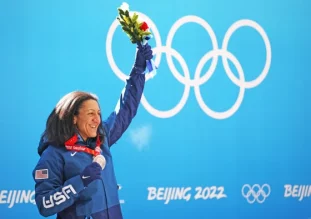
Many people formulate incorrect assumptions about individuals with Down syndrome based on outdated stereotypes. Due to advances in research, medical care, and inclusion, an increasing number of adults with Down syndrome in the U.S. are going taking post-secondary classes or going to college, getting jobs, playing sports, working, getting married and living semi-independent or independent lives.
As a mother, Taylor hopes that her son can see the obstacles she has overcome in her career to inspire him to chase his dreams without hesitation. “If I could advocate for anything to the world, it is to show that our kids have worth, that they can be important and valuable members of our society, and that the people with Down syndrome in our lives should have the same respect and opportunities as anyone else.”
Taylor’s Advice to Families of Individuals with Down Syndrome: “You Are Much Stronger Than You Think”
Parents of children with Down syndrome have some extra hurdles to navigate throughout their child’s life, but these are not infeasible challenges. Therapy, doctor visits, and assisting with daily living tasks can be daunting responsibilities but are not unmanageable compared to the needs of a typical child. Taylor encourages families who either currently have or are about to welcome a child with Down syndrome into their lives to look past the negativity that is so often thrown at them from the outside world and to know that living with a person with Down syndrome is a gift in itself. “I think all of us have that ability inside of us,” Taylor mentions, “just most of us don’t realize we do”.
Taylor and her husband go above and beyond to provide the best for Nico, and when faced with challenges that seem impossible or overwhelming, they are reminded that Nico is a child like any other, and their job as parents is to simply love and support him unconditionally. “Just trust your own abilities and know that you are much stronger than you think.” The Taylors’ unwavering love for Nico has helped them face these new circumstances head-on and accept that while their situation is not a typical one, they can still achieve their goals as a family. Much like Taylor’s unexpected path to the Olympics—averting her original plans of playing softball and taking on a completely new sport—her experience raising Nico has brought her and her family more gratification and joy than they ever could have imagined.
Advocating for a Brighter Future for those with Down Syndrome
Great strides have been made to reverse the harmful, outdated assumptions about people with Down syndrome in society, but there is still a lot of work to do. Many health and medical concerns associated with Down syndrome still do not have adequate research and funding dedicated to them. At GLOBAL, the mission is to significantly improve the lives of people with Down syndrome through research, medical care, education, and advocacy. In 2021, Elana Myers Taylor attended the GLOBAL AcceptAbility Gala in Washington DC and inspired the audience with her work on inclusion and with her powerful speech made with Nico in her arms.
She is clearly someone who leads by example and works to open doors for individuals who are differently-abled in their communities. At the event Taylor announced that she was proud to be an official GLOBAL International Spokesperson joining the ranks of Quincy Jones, Jamie Foxx, John C. McGinley, Frank Stephens, Kyra Phillips, Beverly Johnson, and Amanda Booth. As an International Spokesperson and member of GLOBAL’s Champion Advisory Board, Taylor will work every year to advocate in Washington, DC, her hometown of Atlanta, and around the world.
“I’m so honored and excited to be part of an organization that in a very short time has succeeded in advocating for increased federal Down syndrome research funds,” Taylor says. “We need to have both sides of the aisle advocating for our kids and to come up with a plan to address lifespan and health disparities for black people with Down syndrome as well. Our kids deserve equity, respect, inclusion, and the right to live safe, happy and productive lives.”
Clearly the Down syndrome community has a formidable ally and a new leader in Taylor who understands how to work hard and create real change.
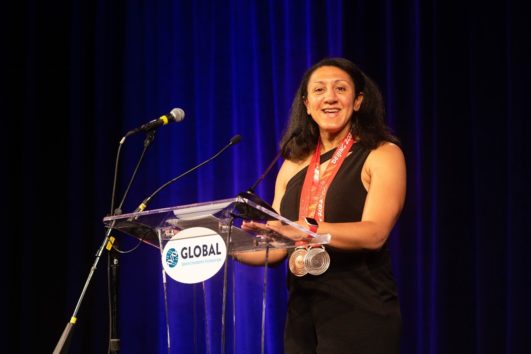
Like this article? Join Global Down Syndrome Foundation’s Membership program today to receive 4 issues of the quarterly award-winning publication, plus access to 4 seasonal educational Webinar Series, and eligibility to apply for Global’s Employment and Educational Grants.
Register today at downsyndromeworld.org!





 Experience our inspirational and groundbreaking videos and photos. Our children and self-advocates are beautiful AND brilliant!
Experience our inspirational and groundbreaking videos and photos. Our children and self-advocates are beautiful AND brilliant! Make sure your local Representatives are on the Congressional Down Syndrome Task Force.
Make sure your local Representatives are on the Congressional Down Syndrome Task Force.